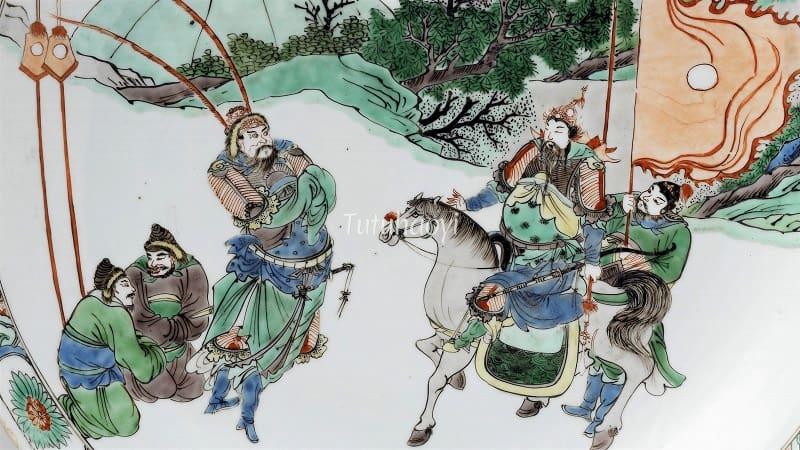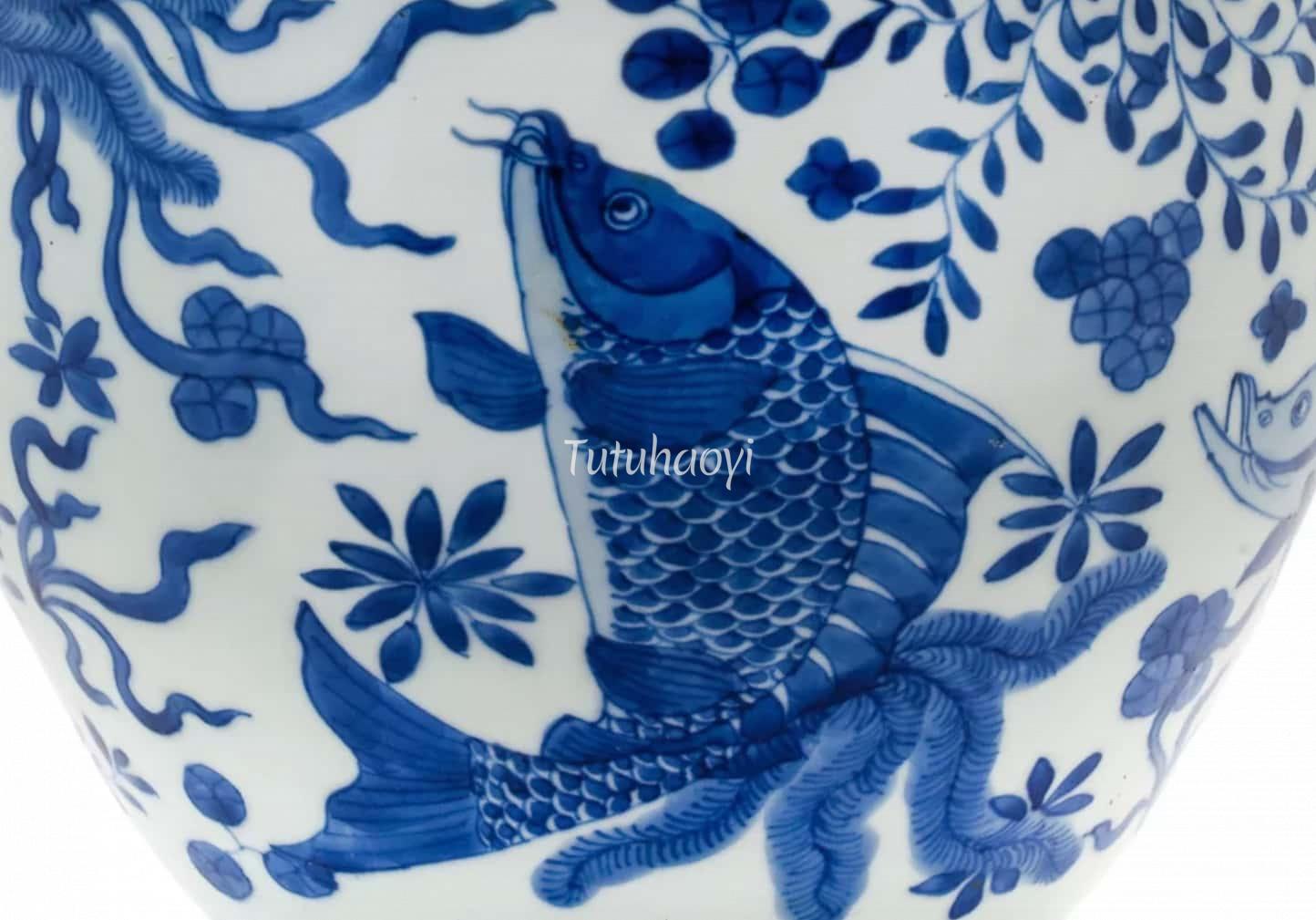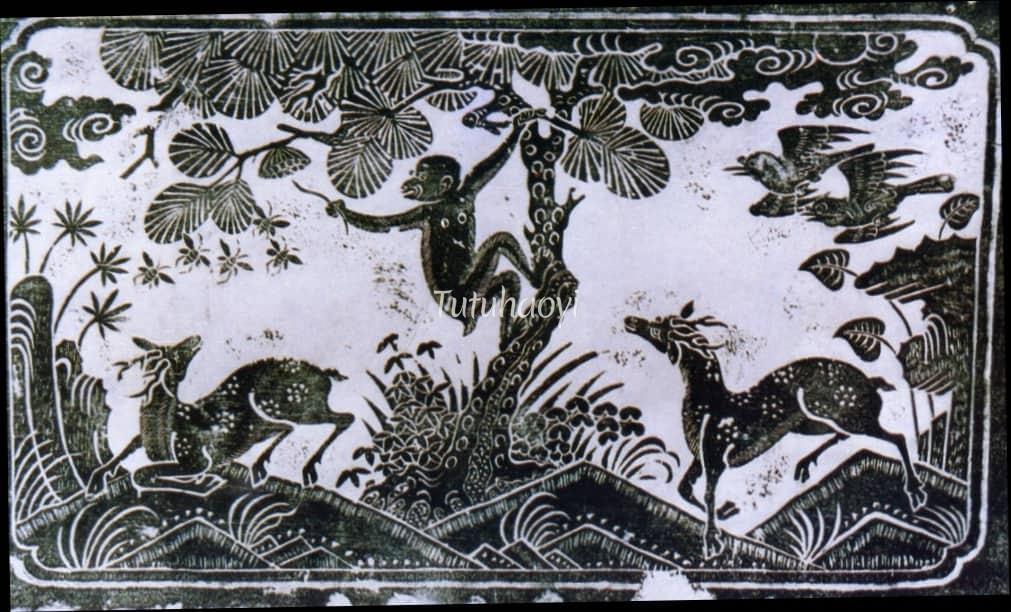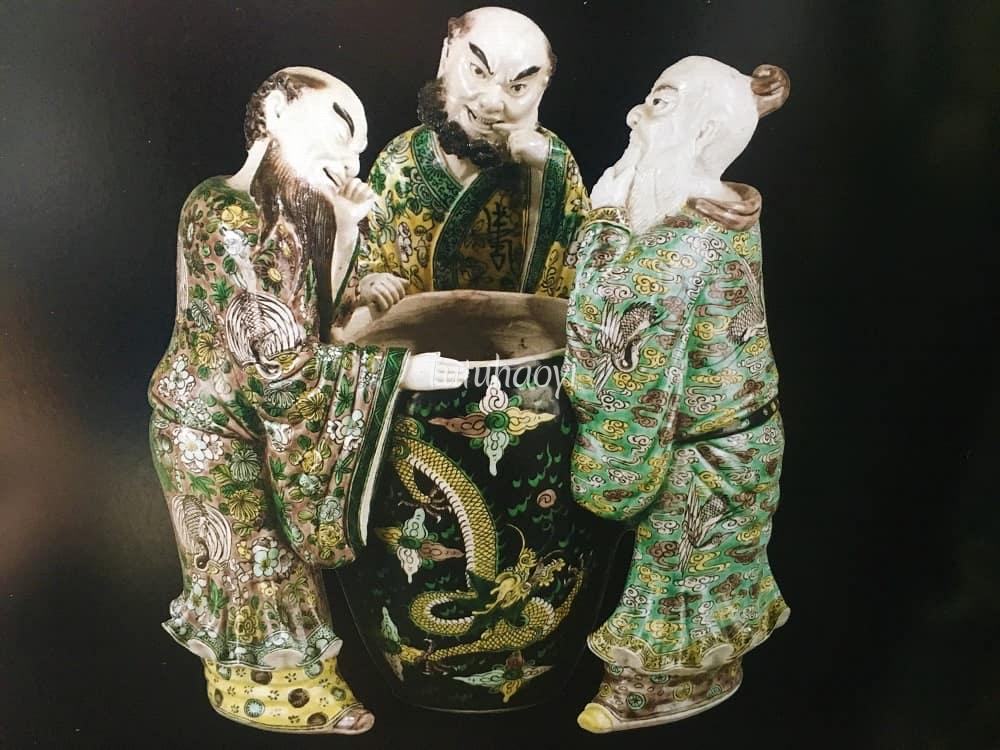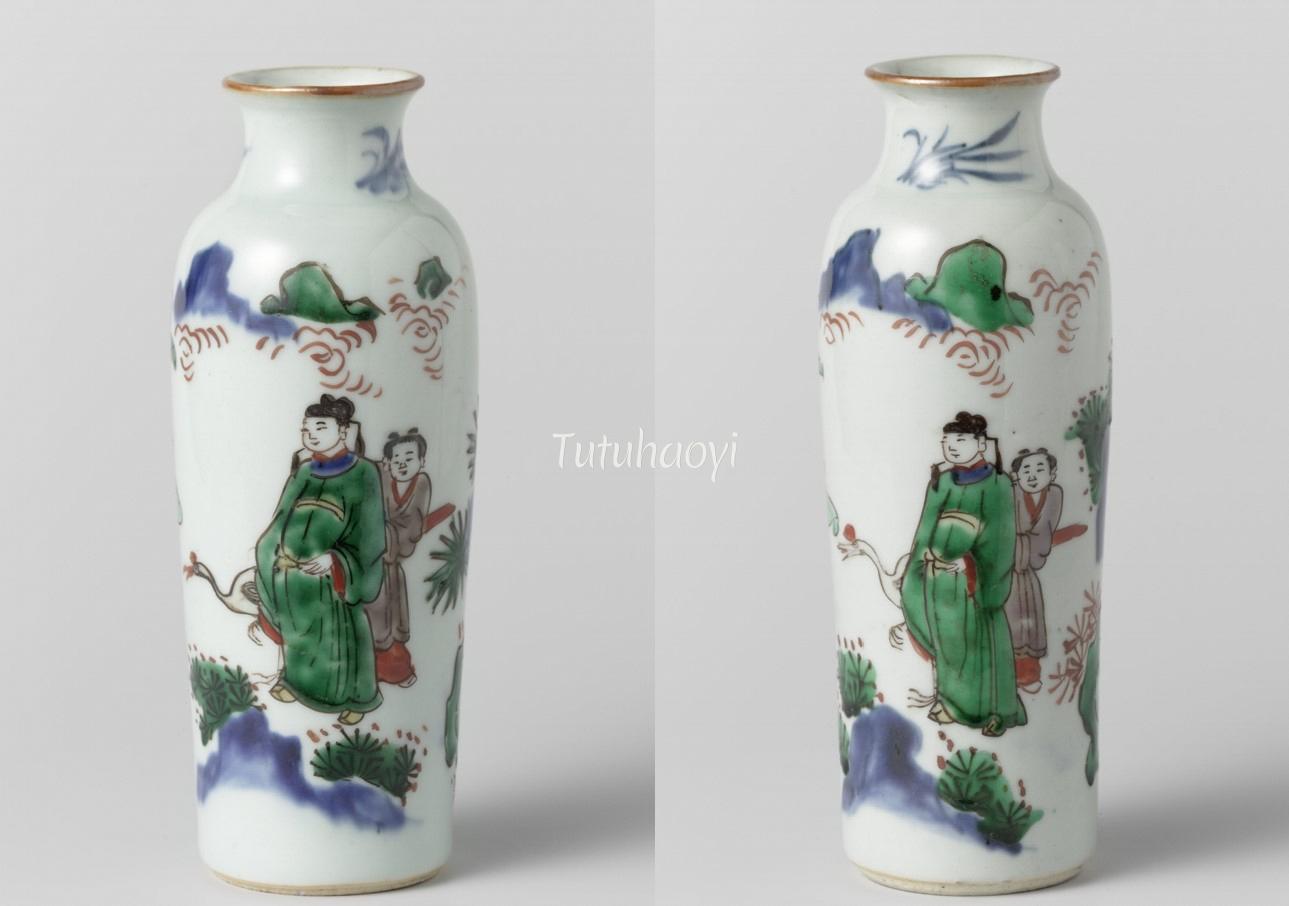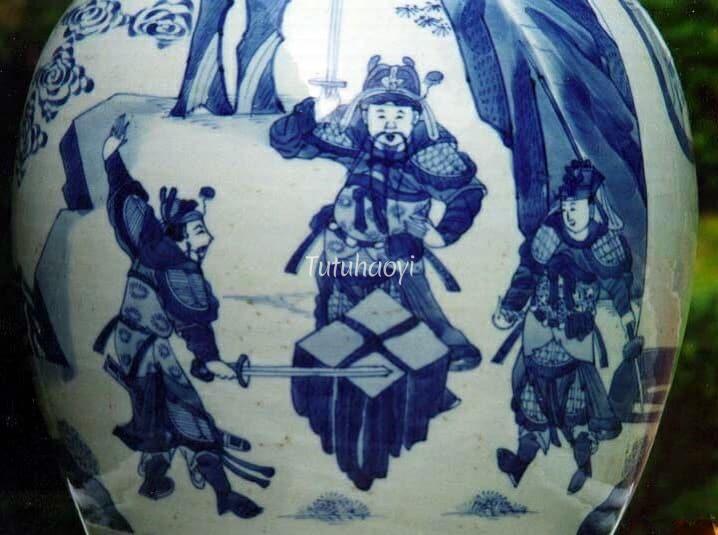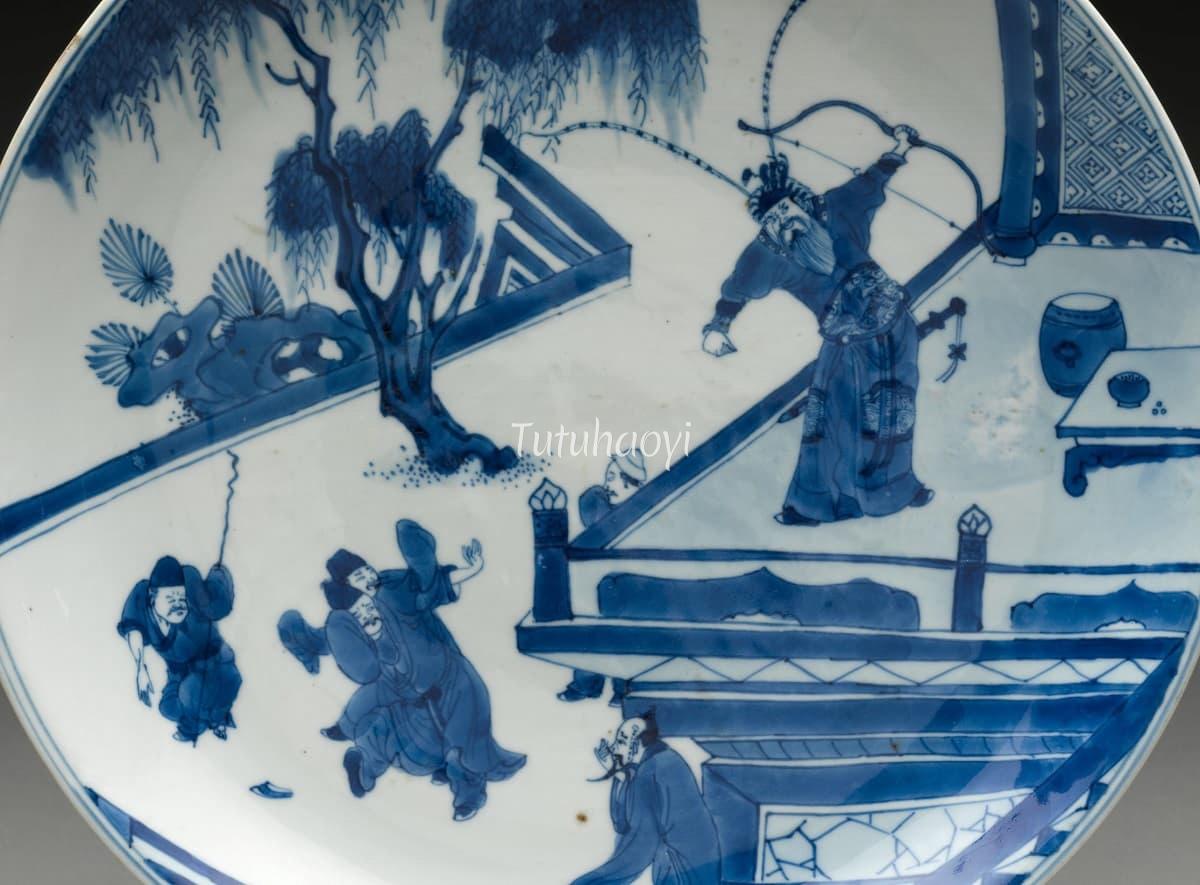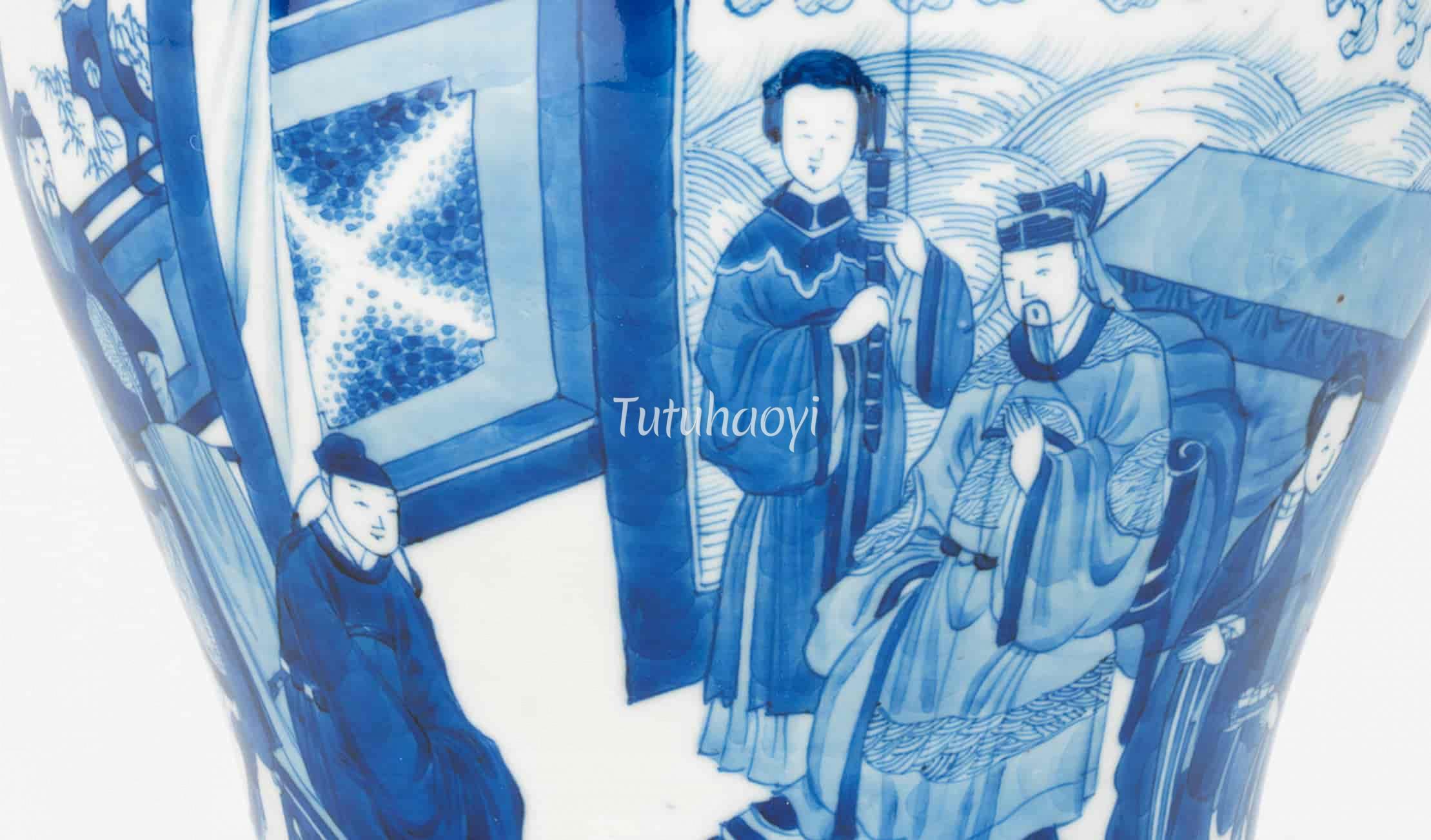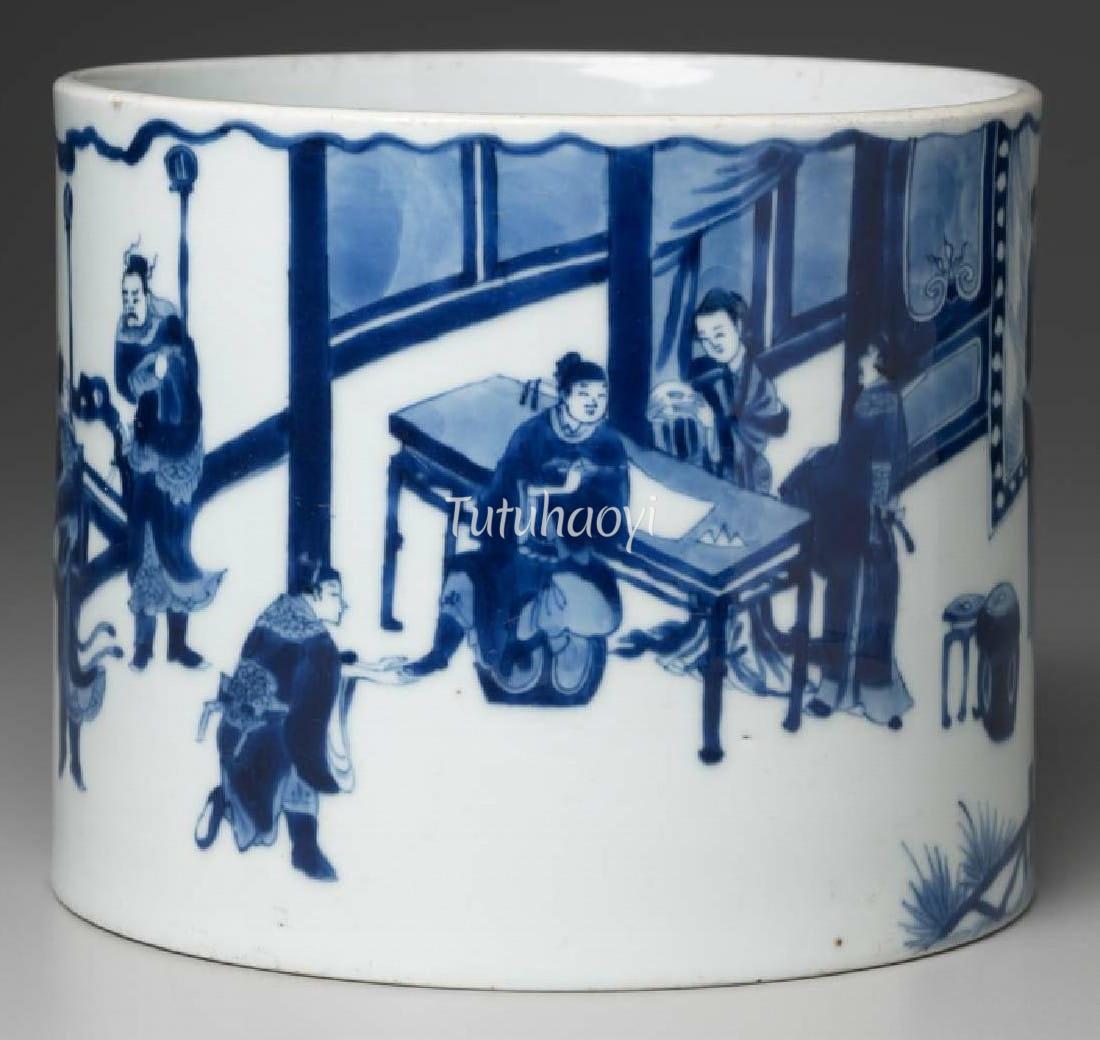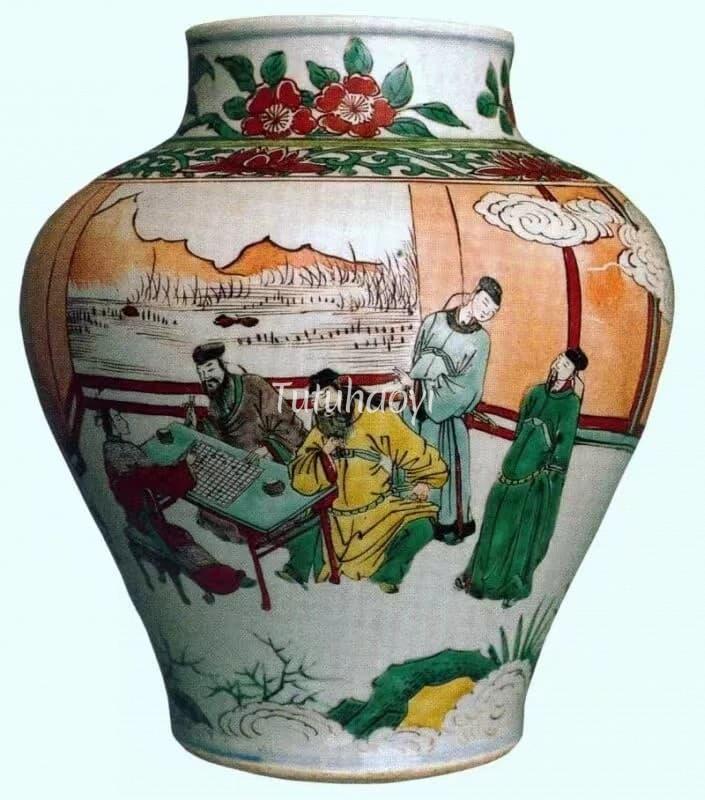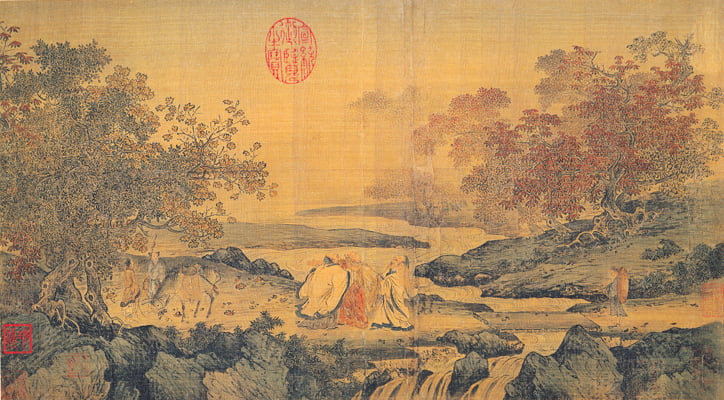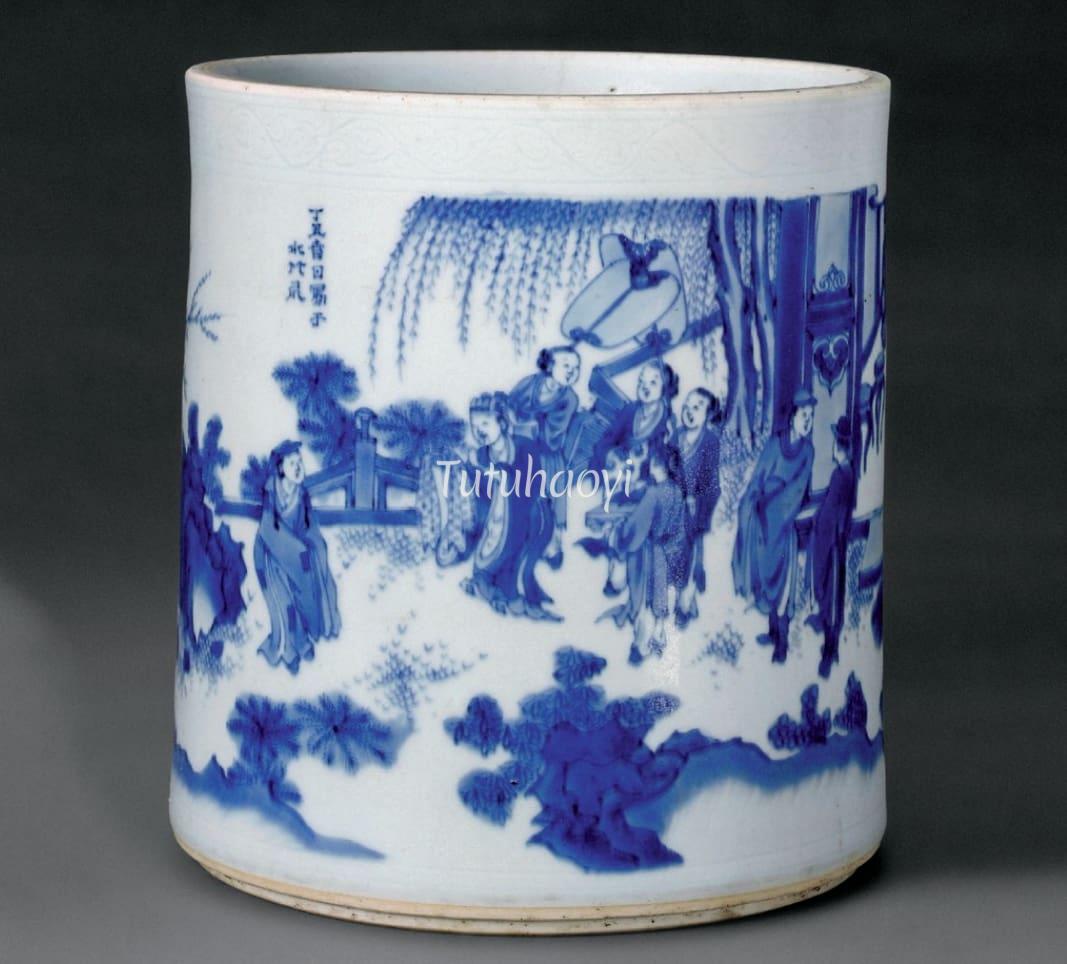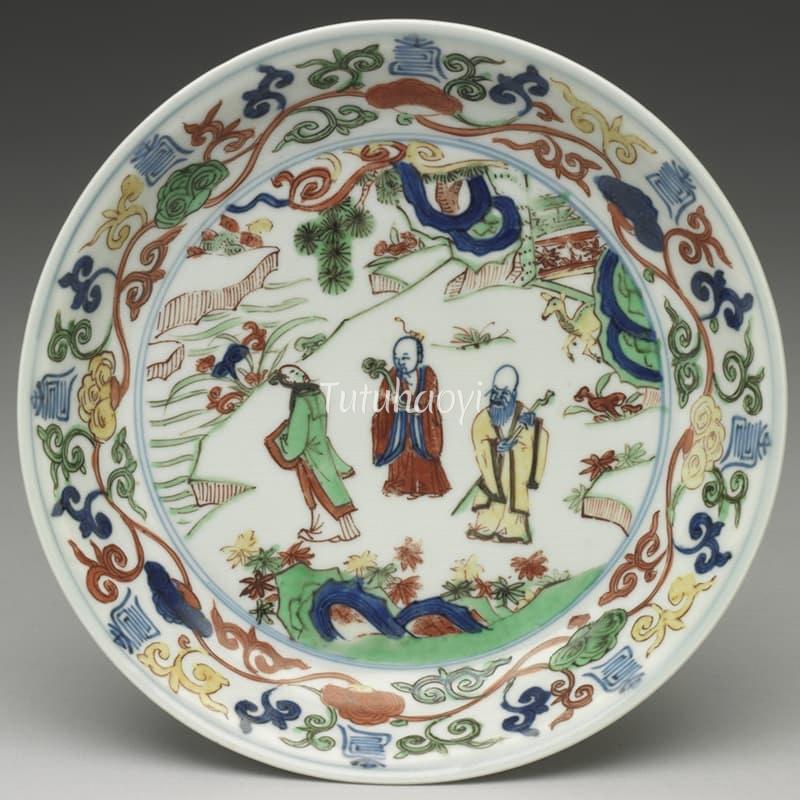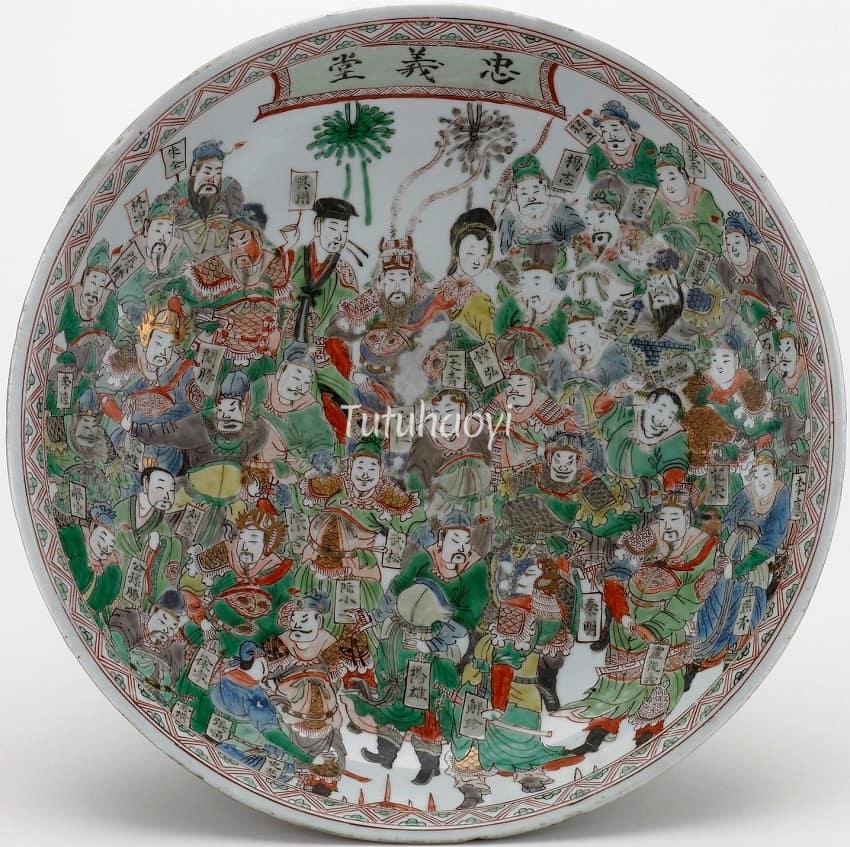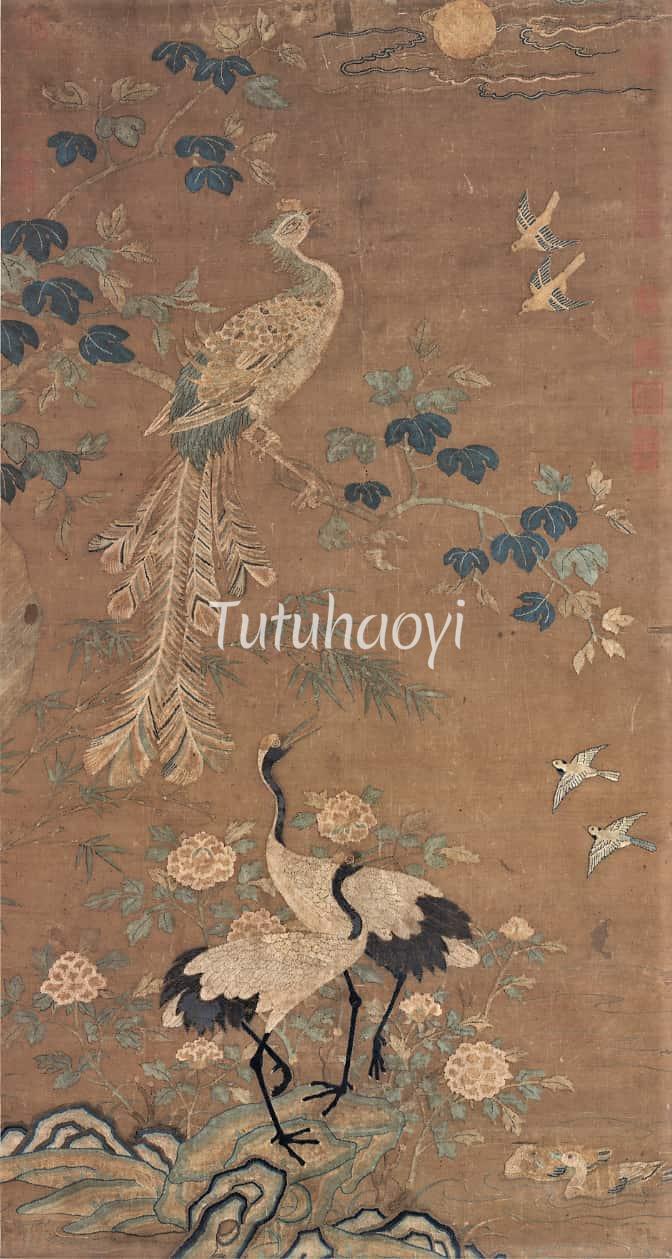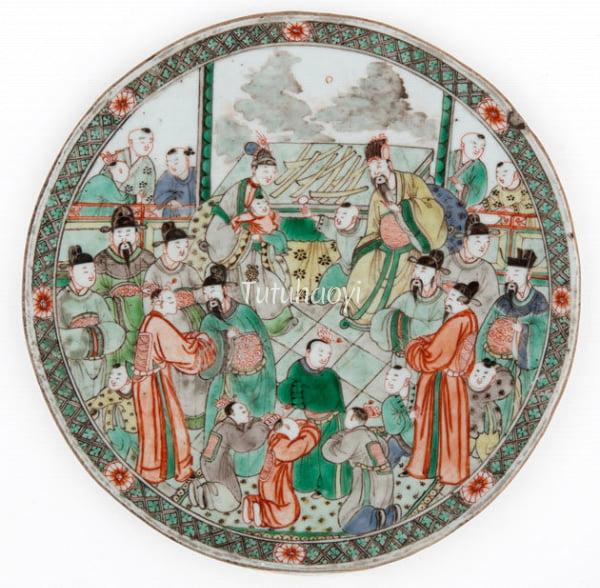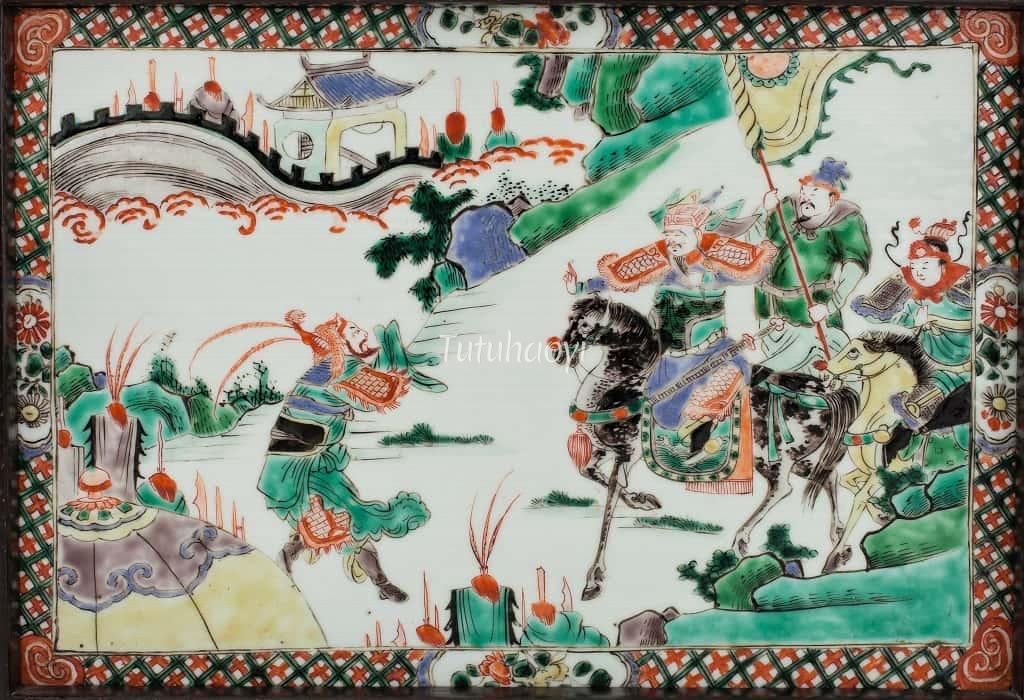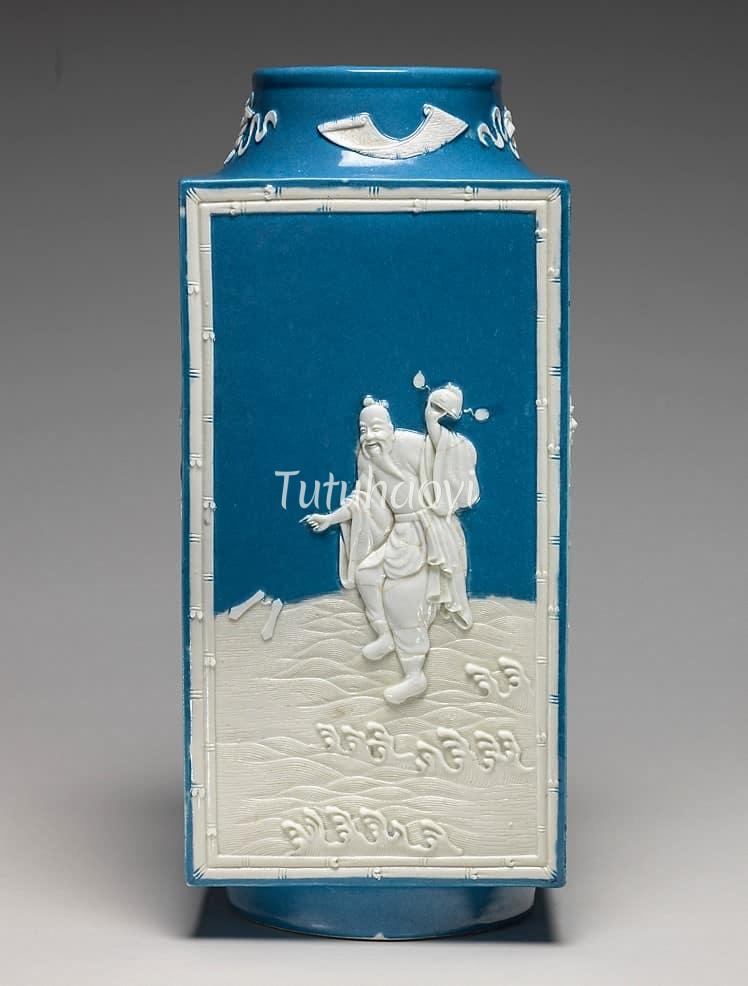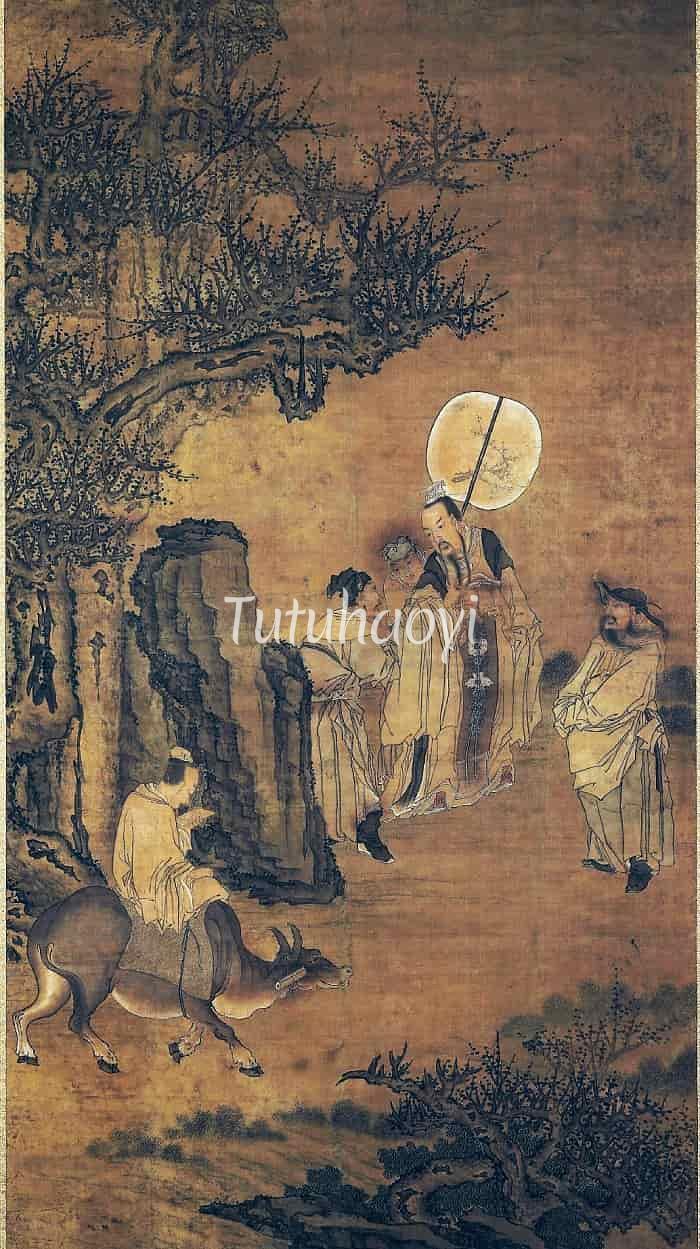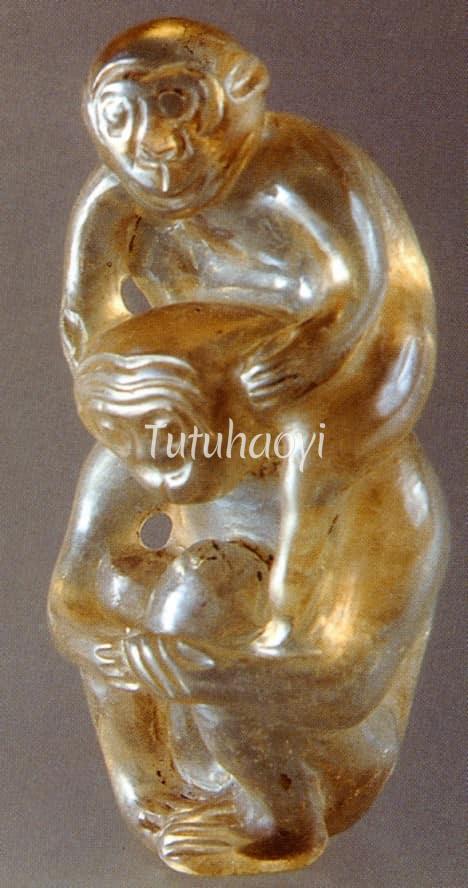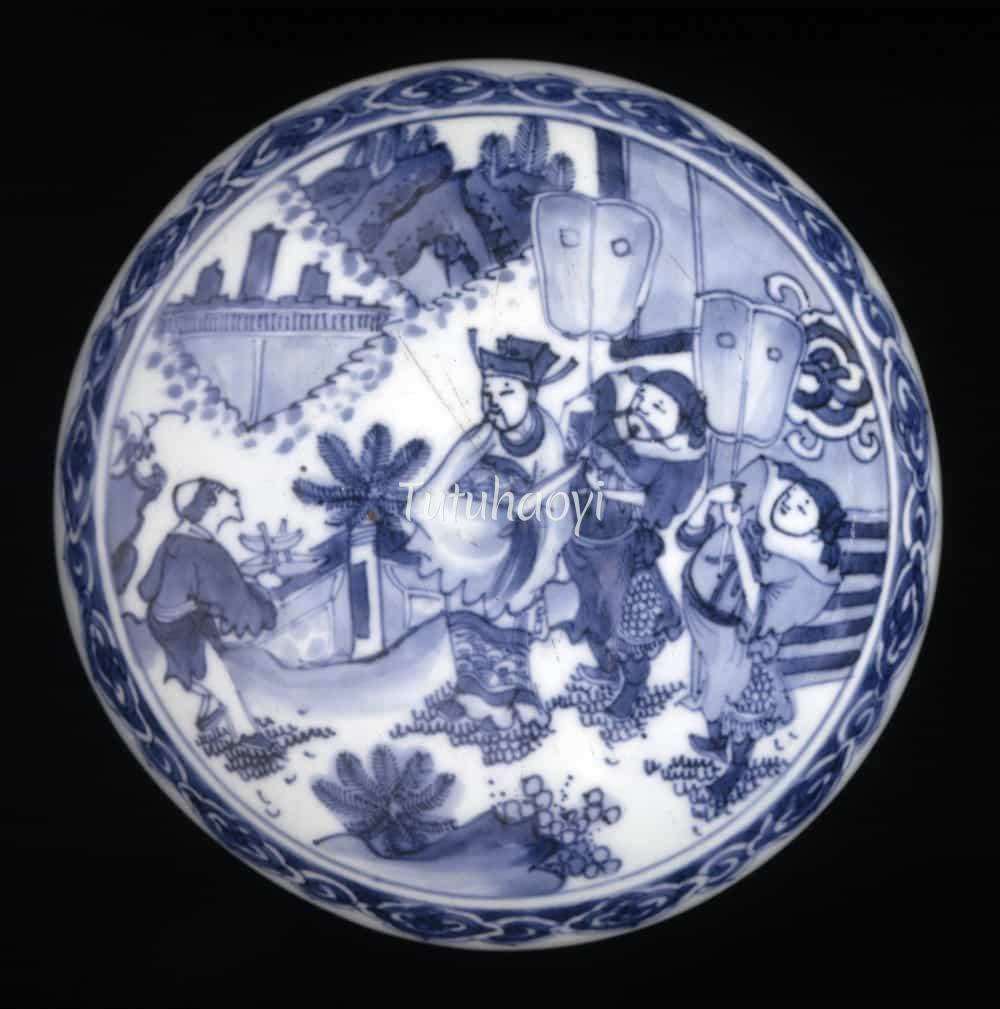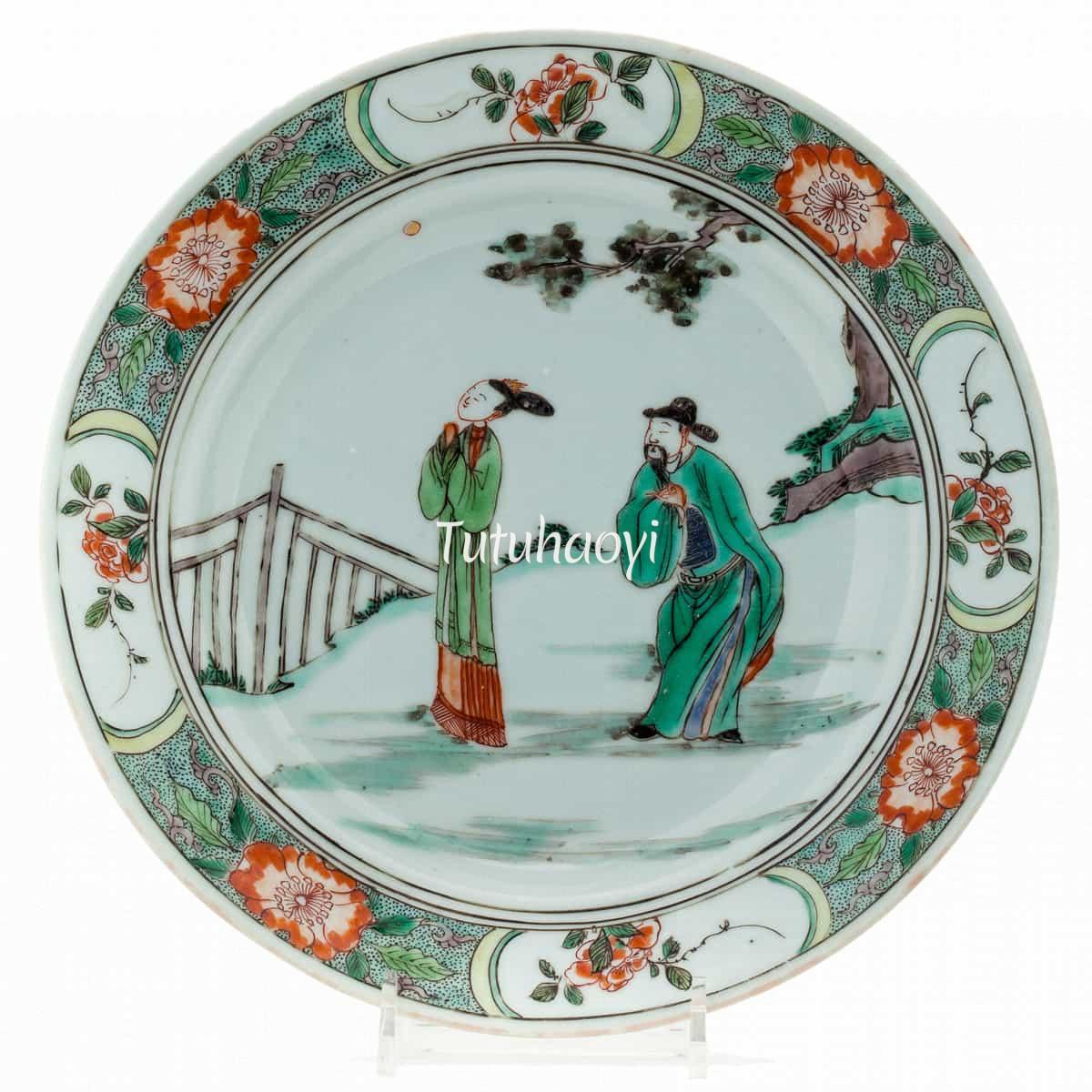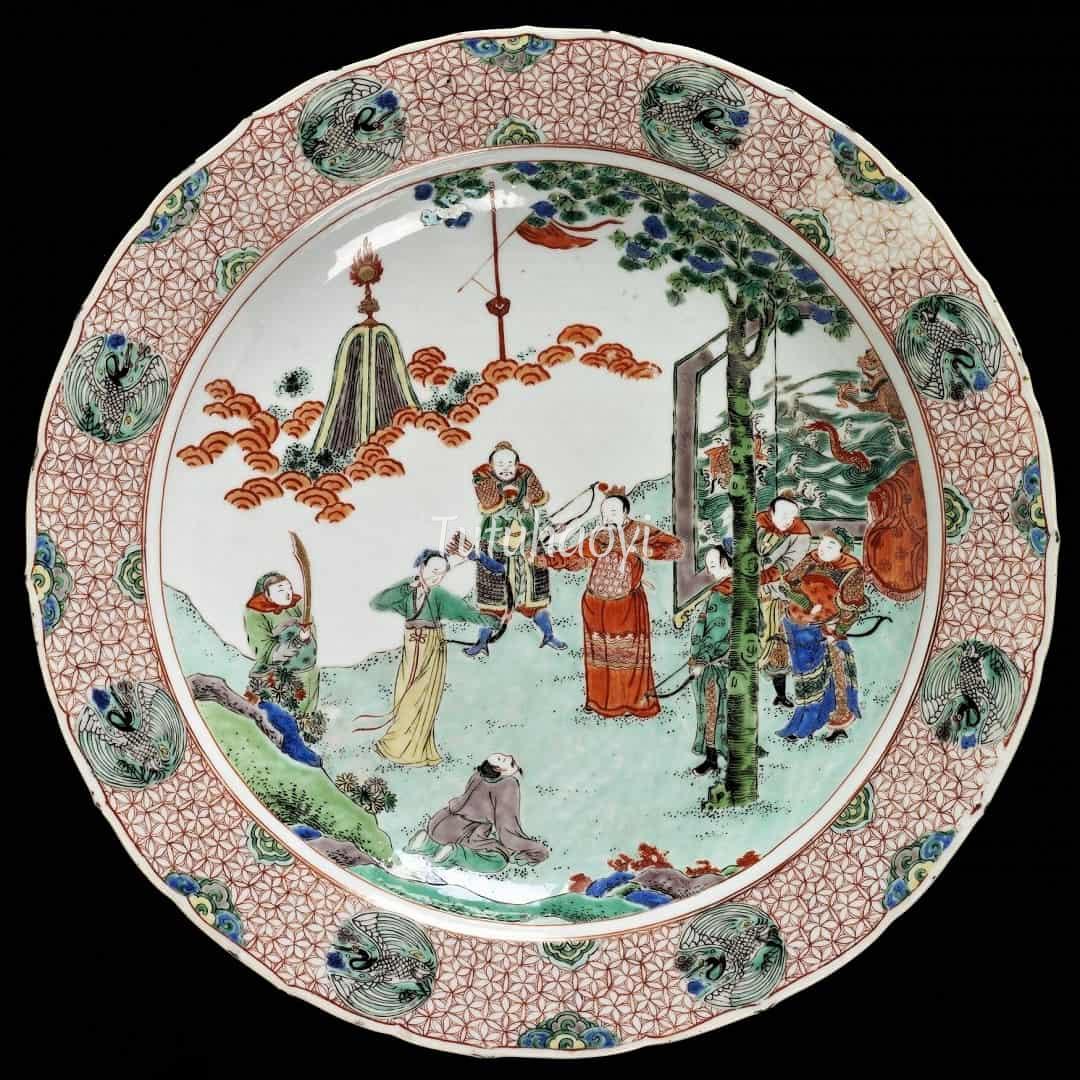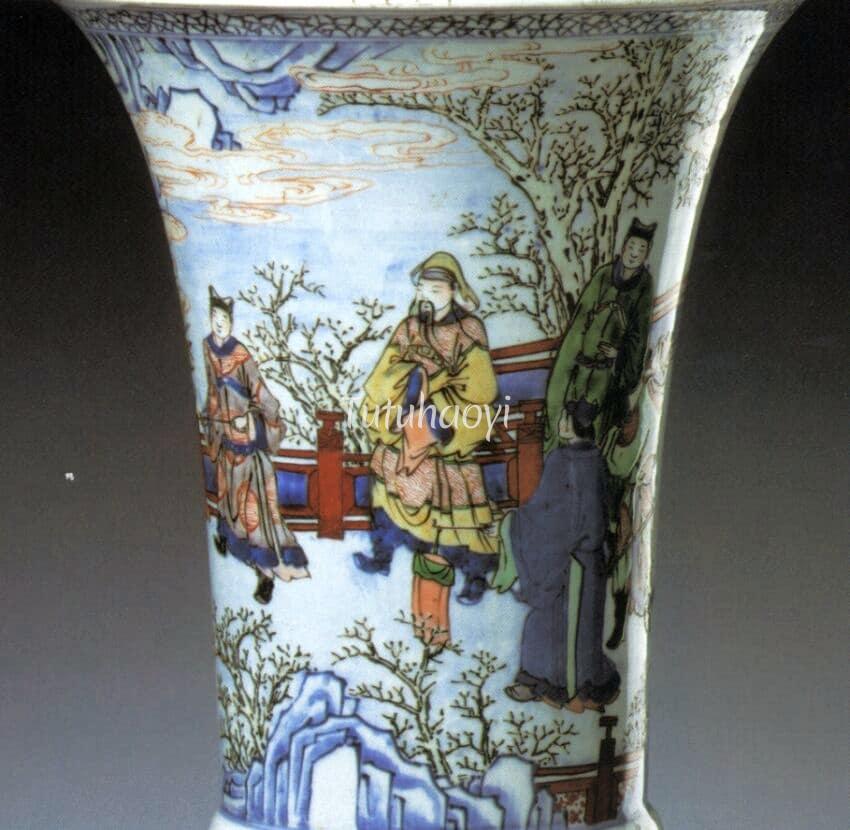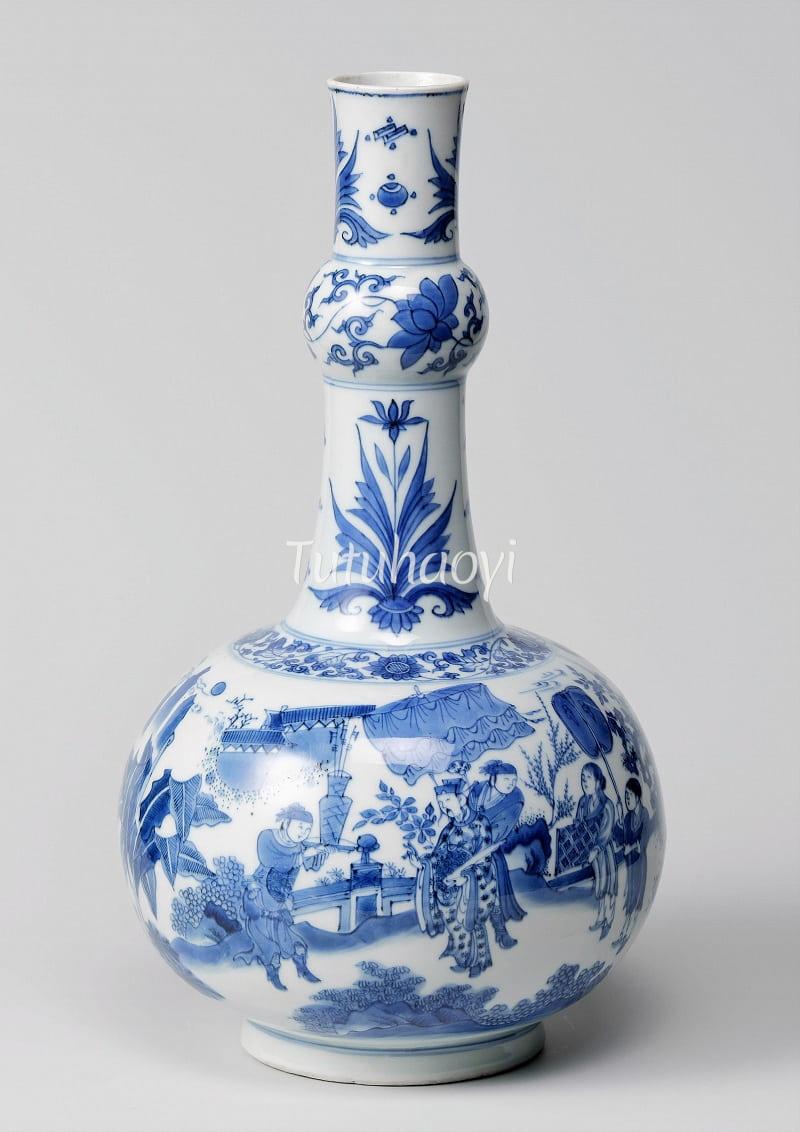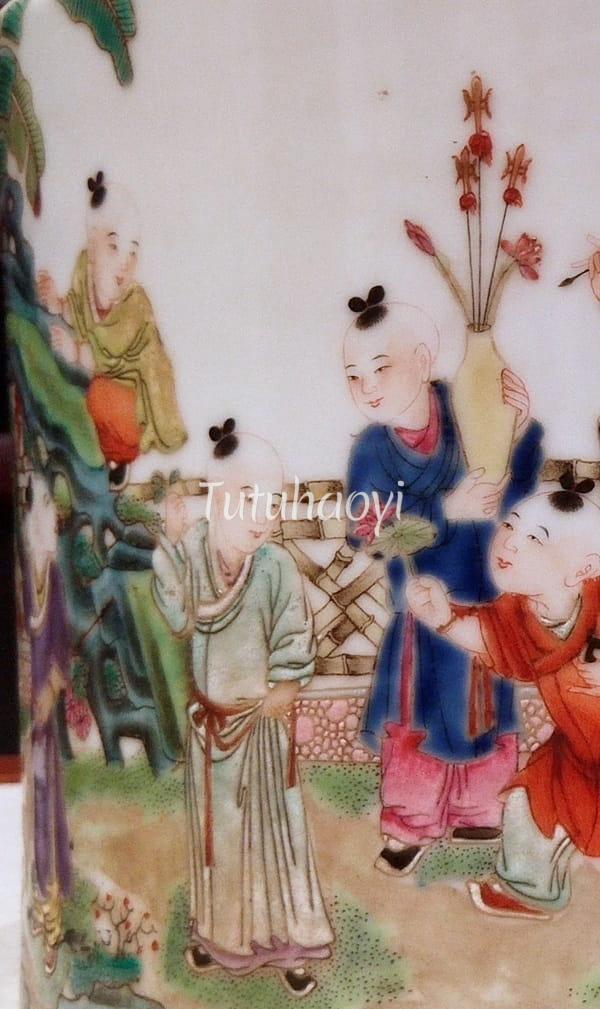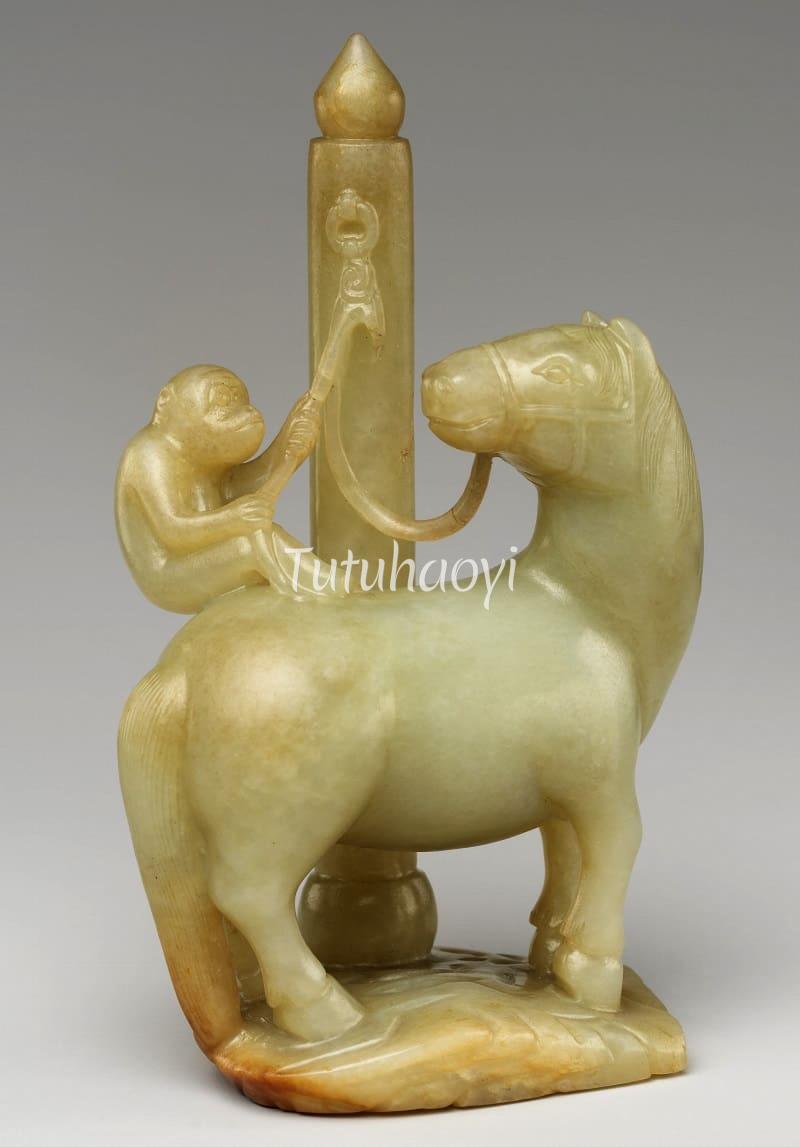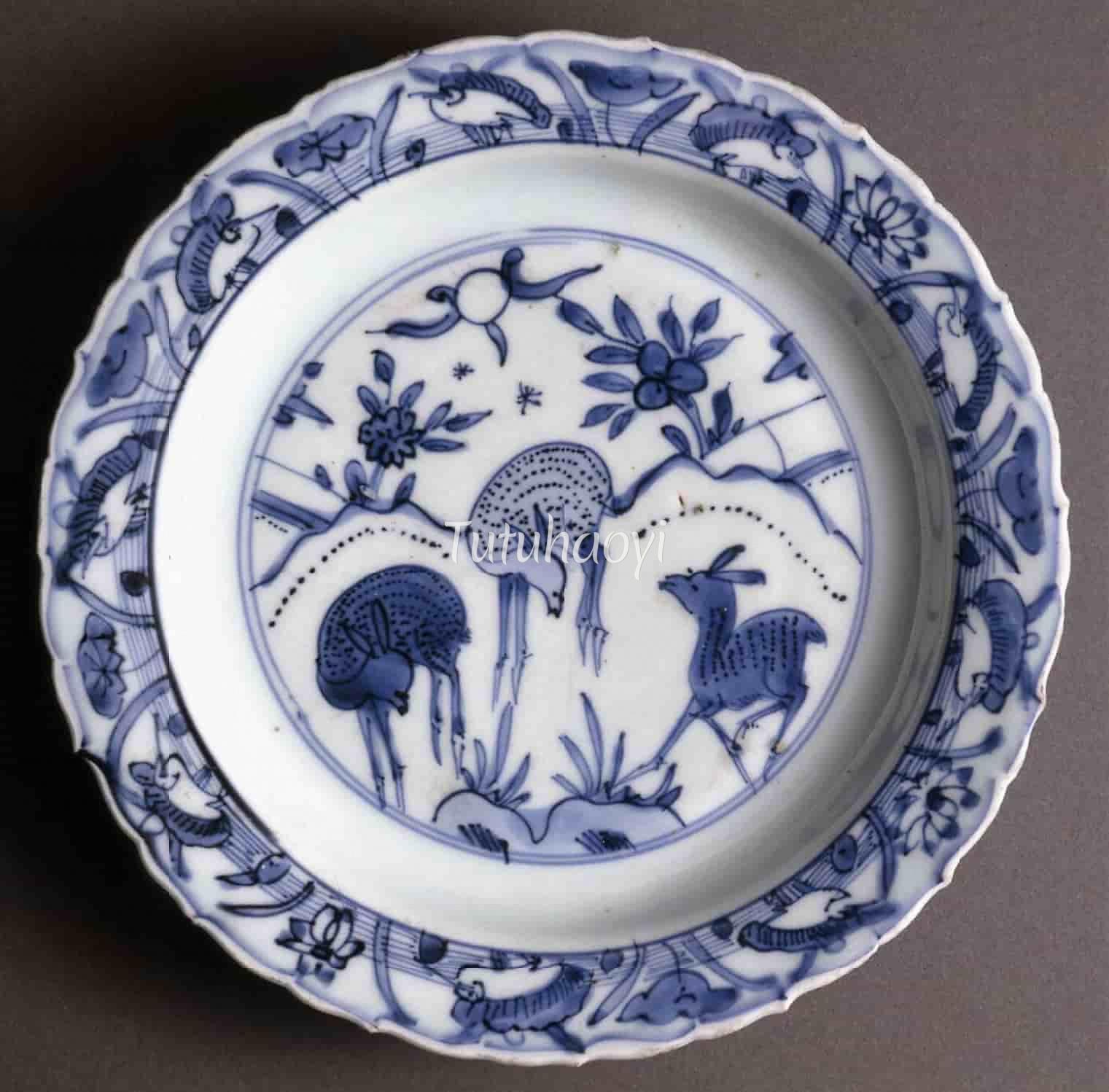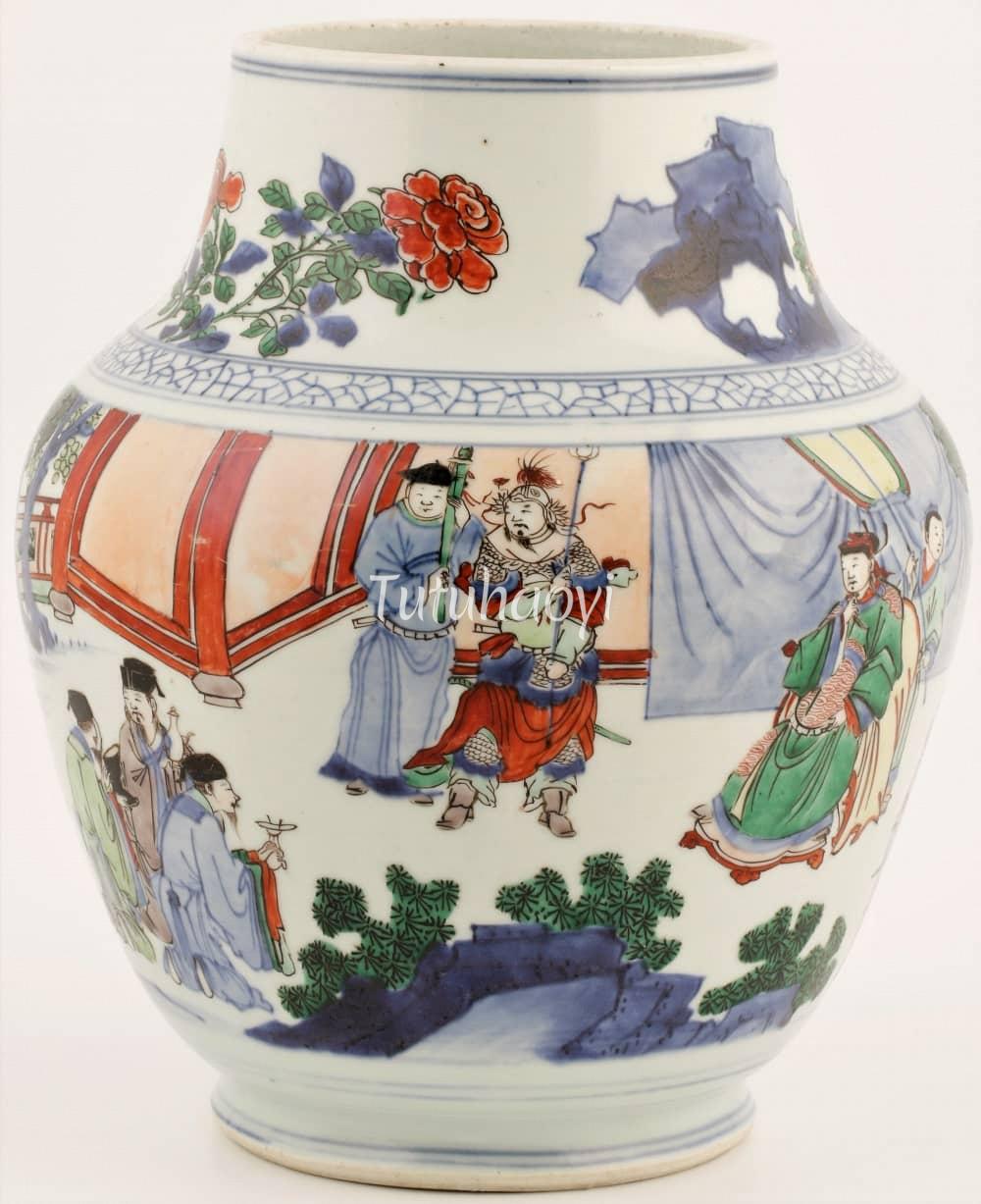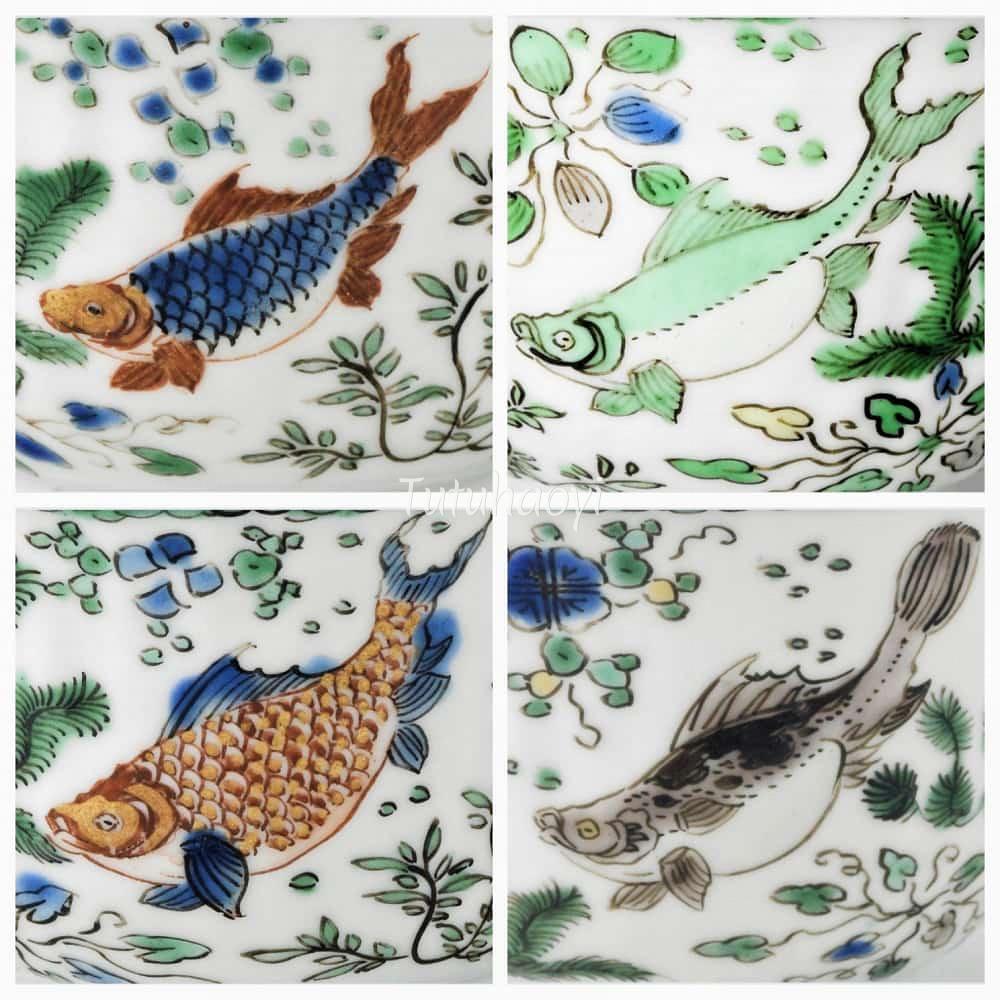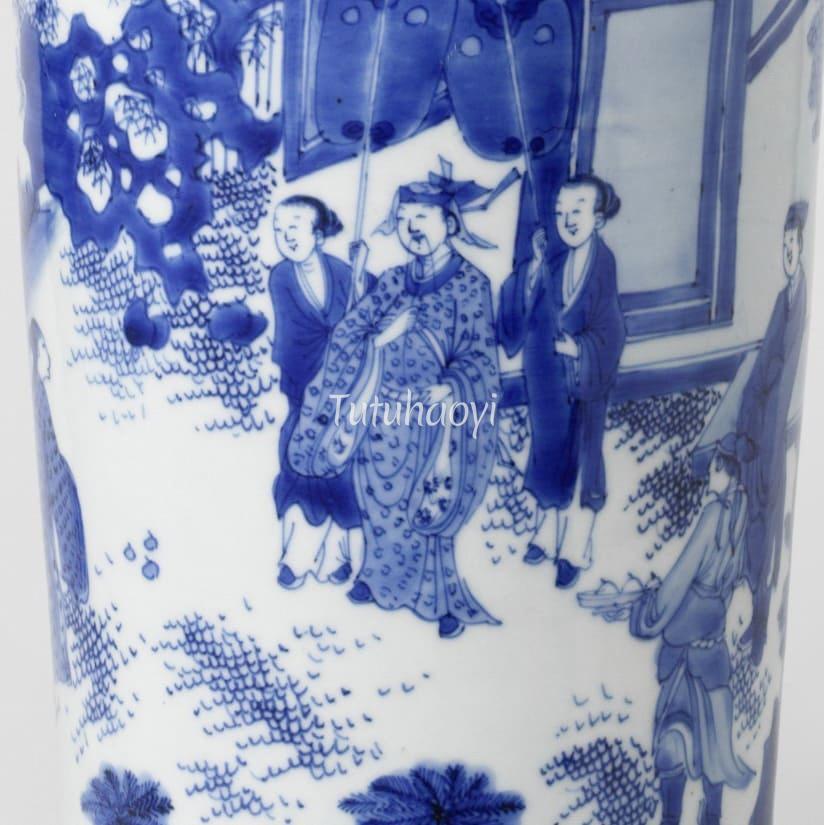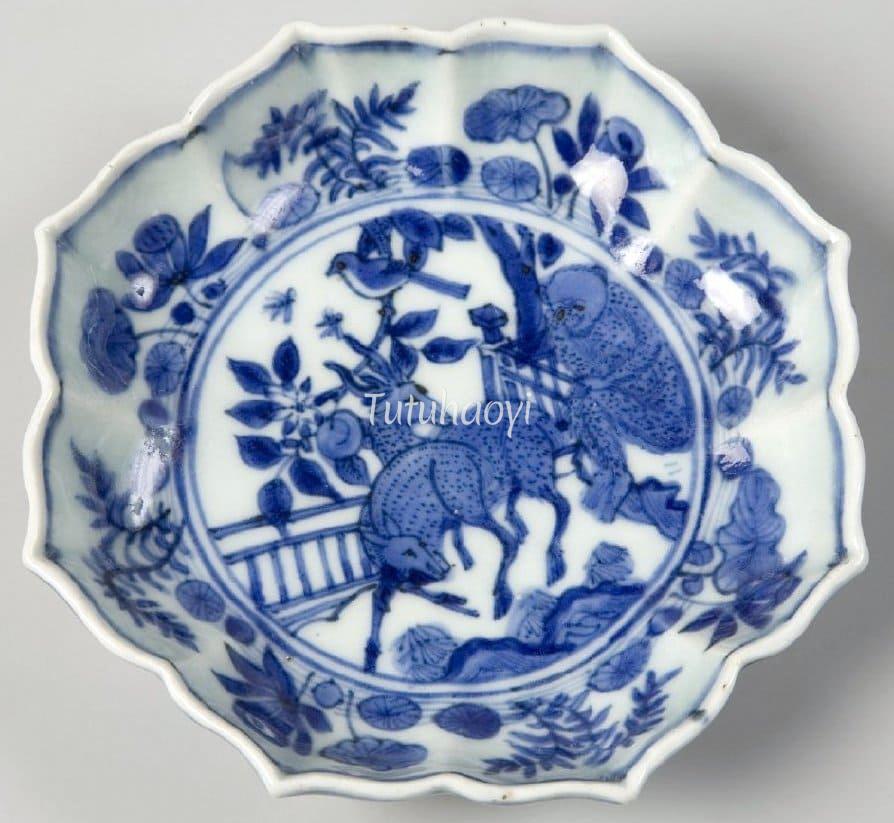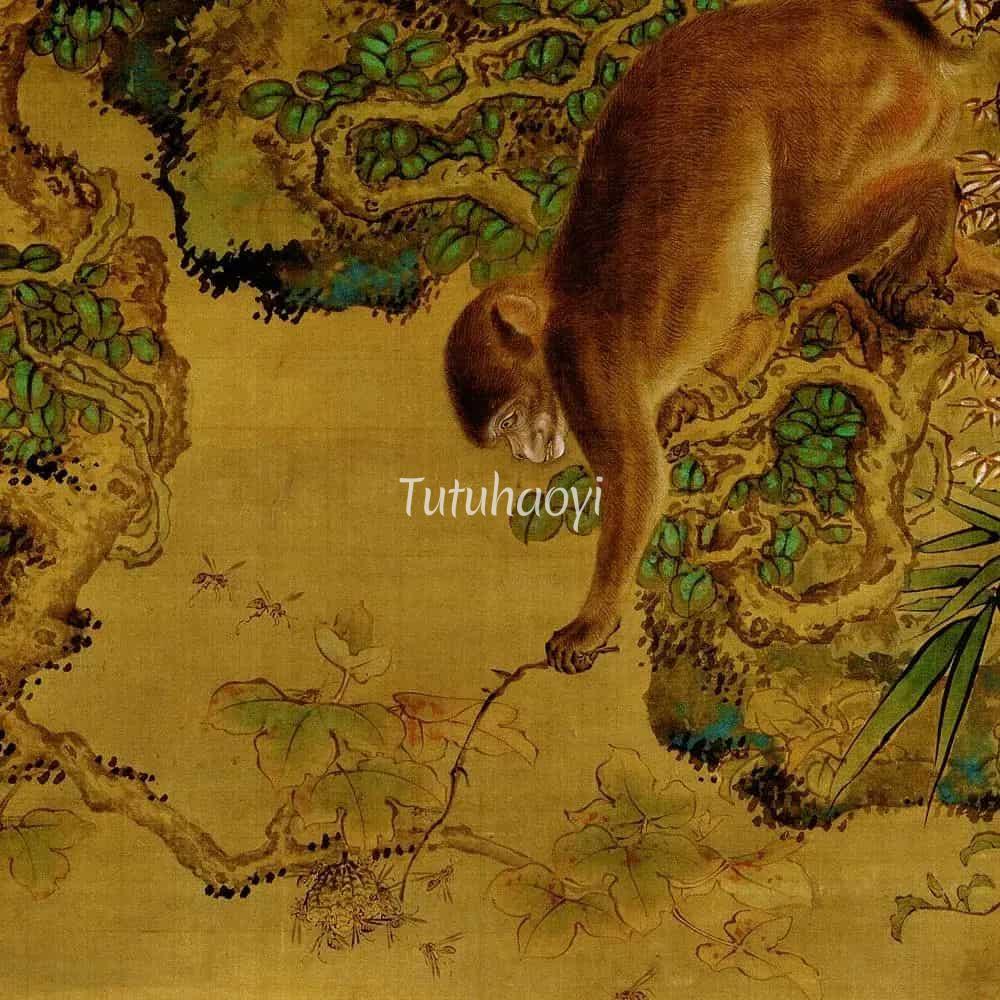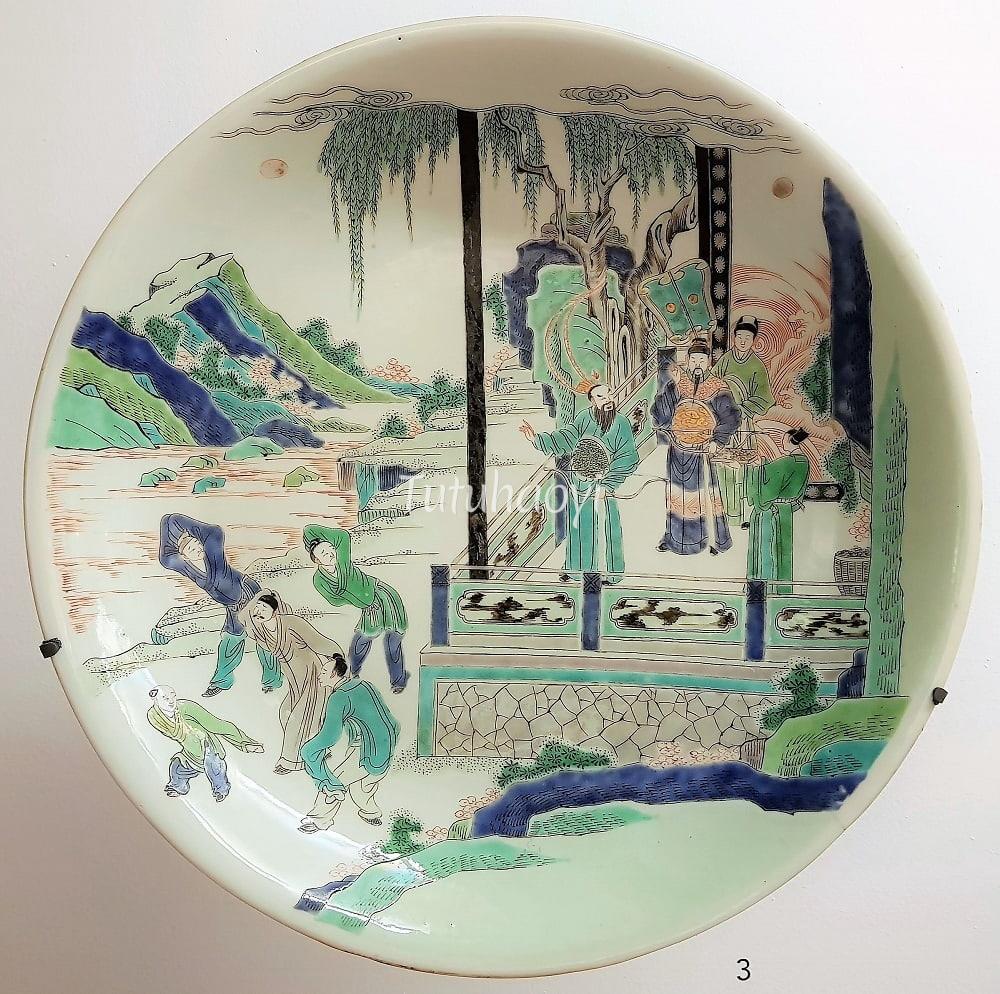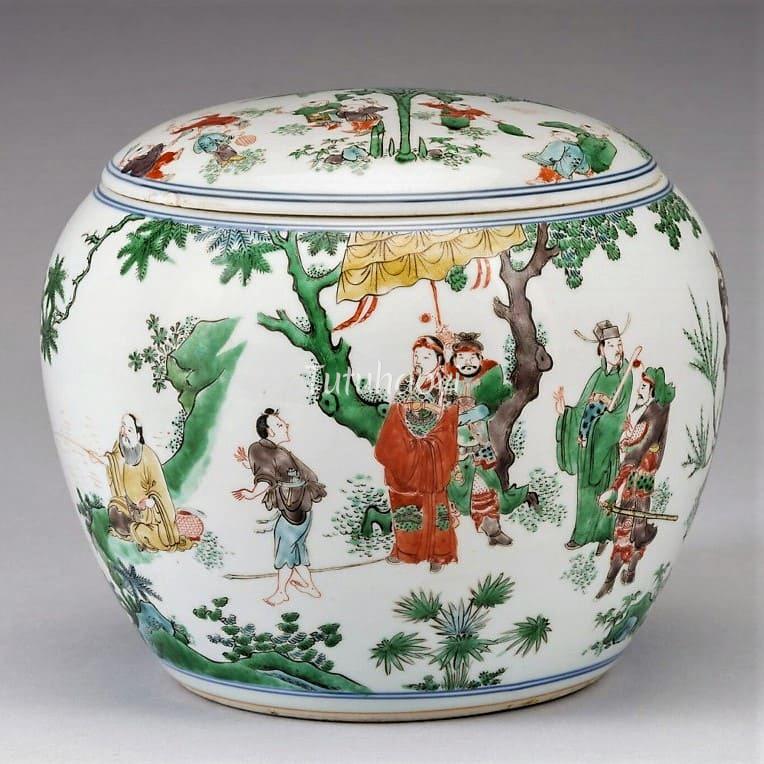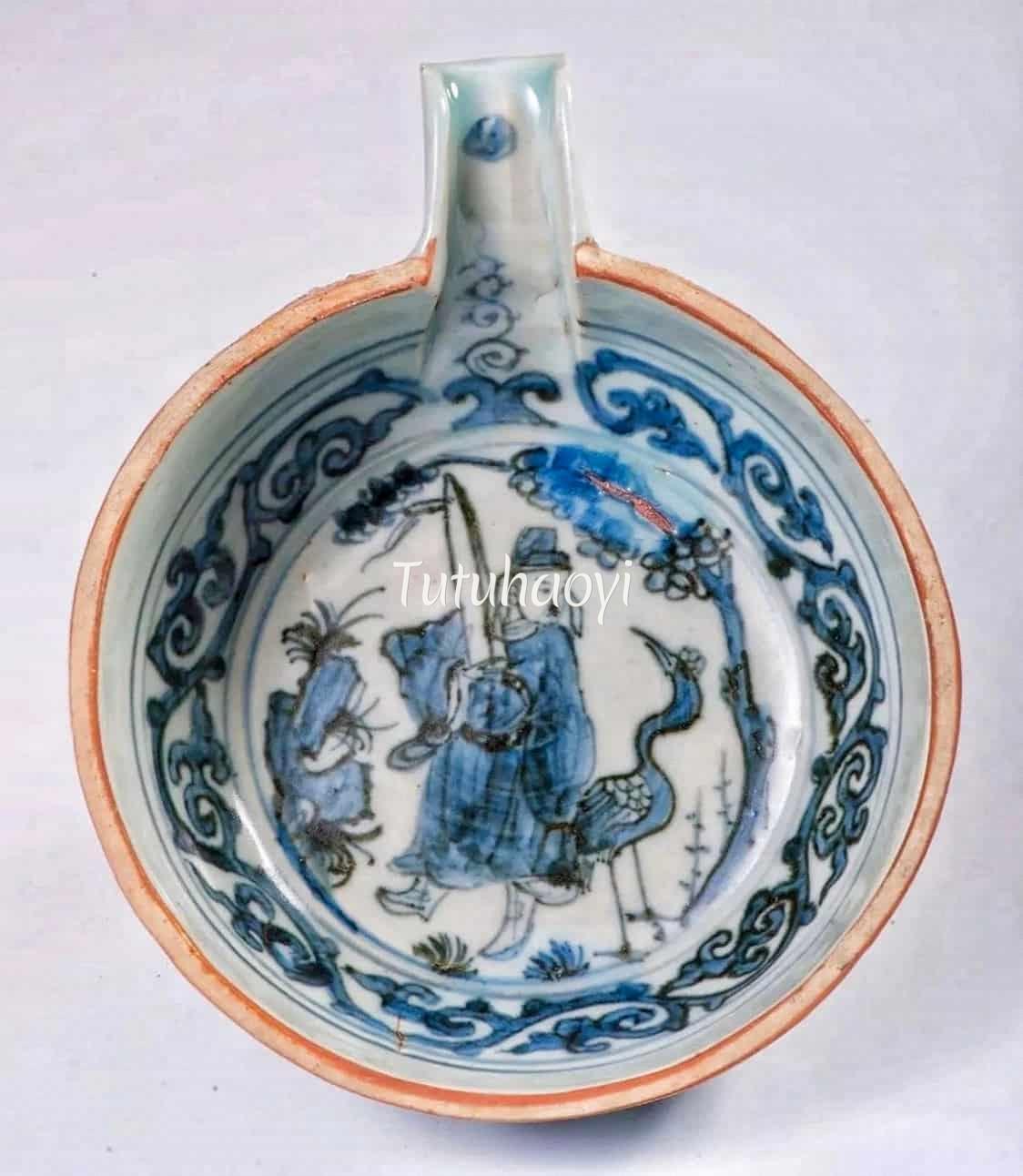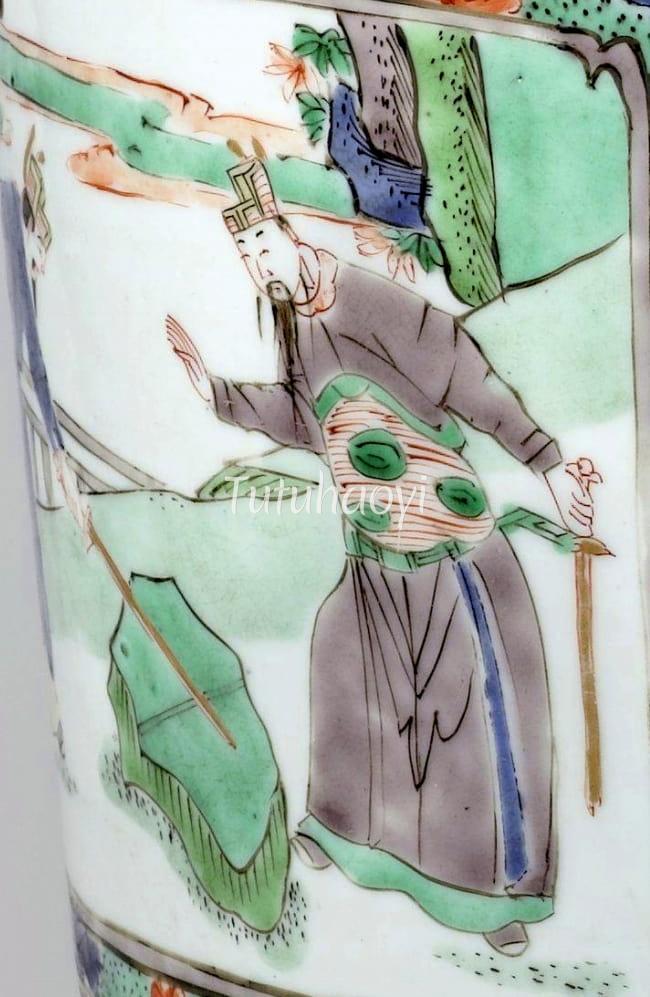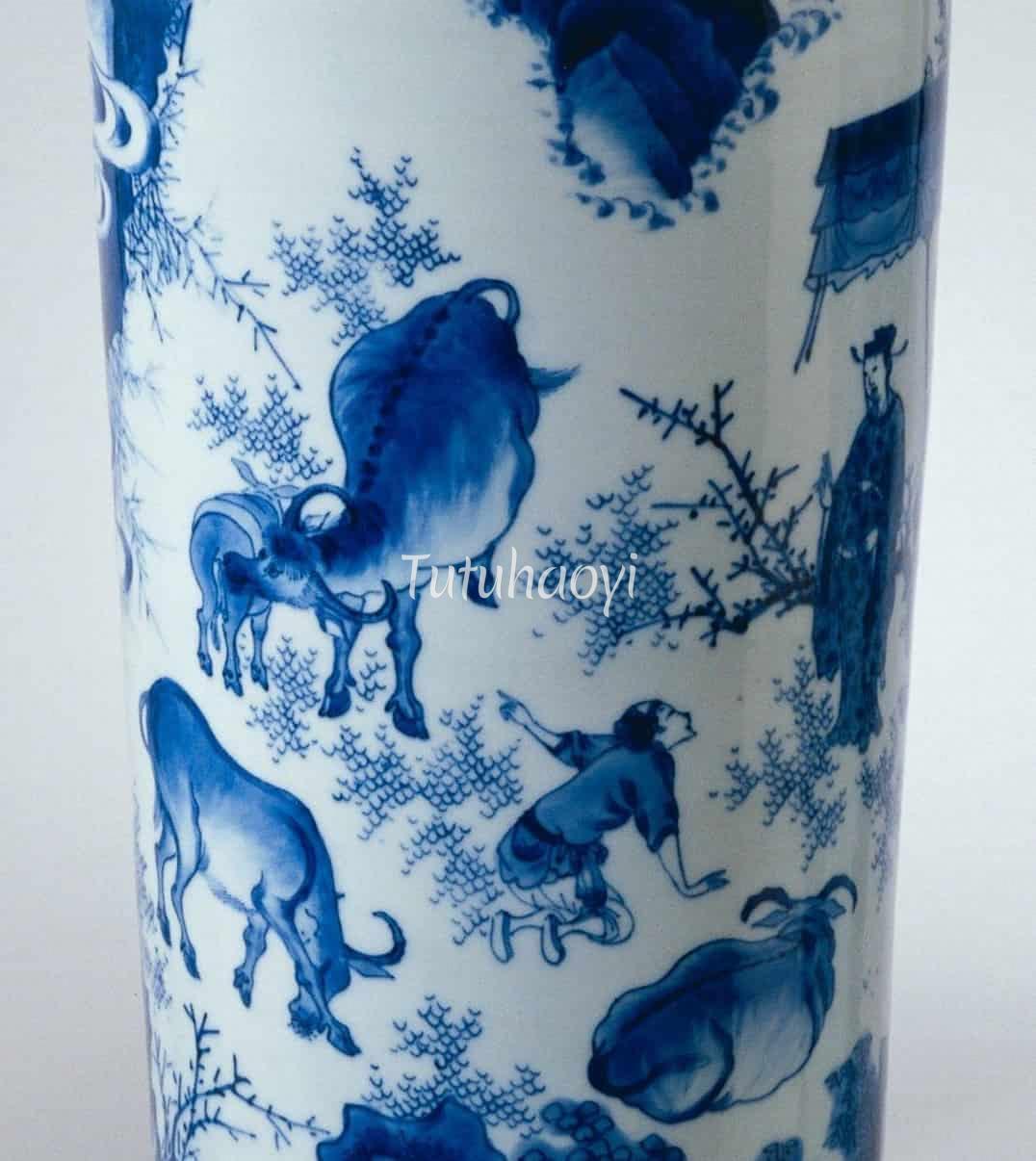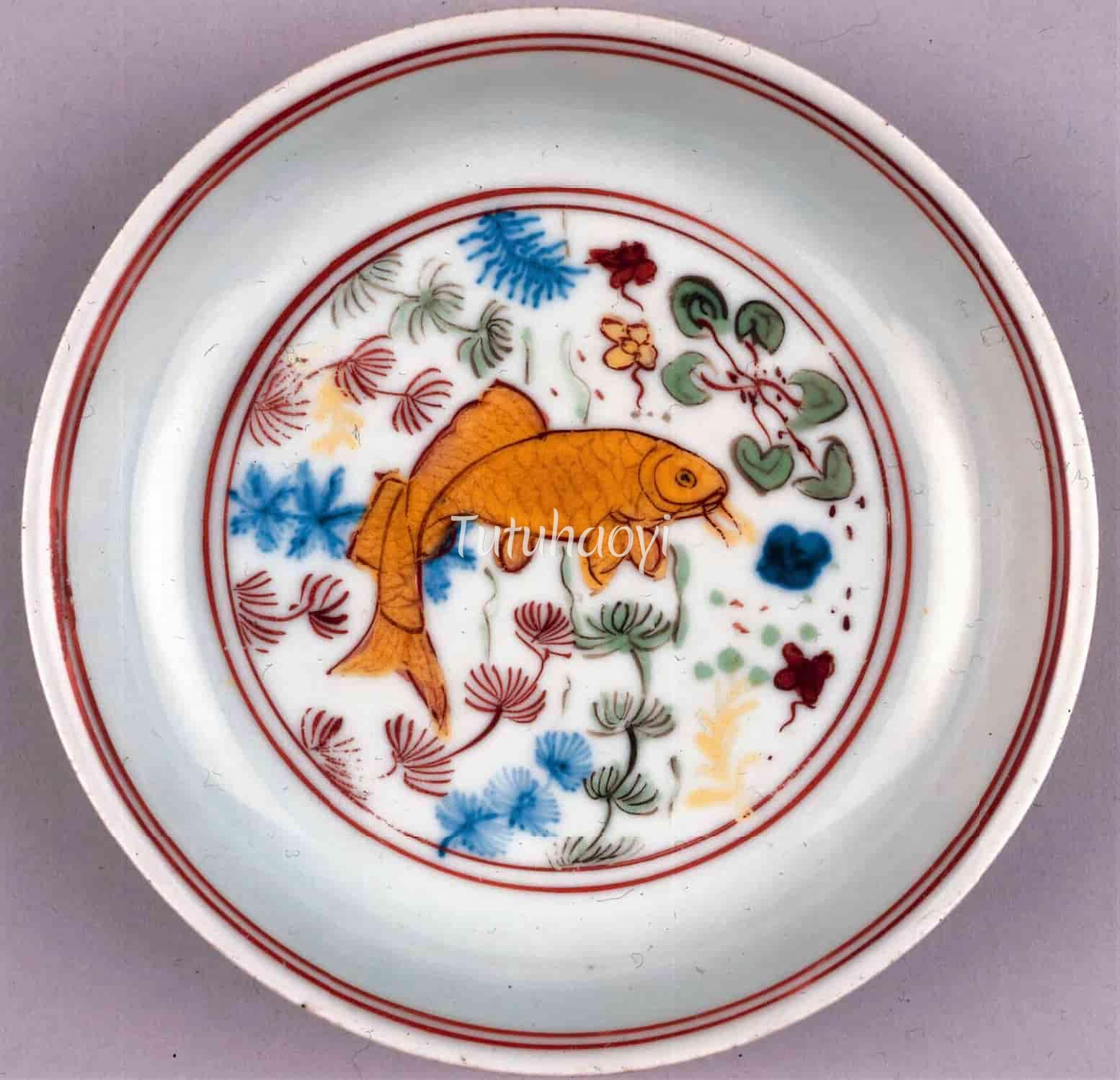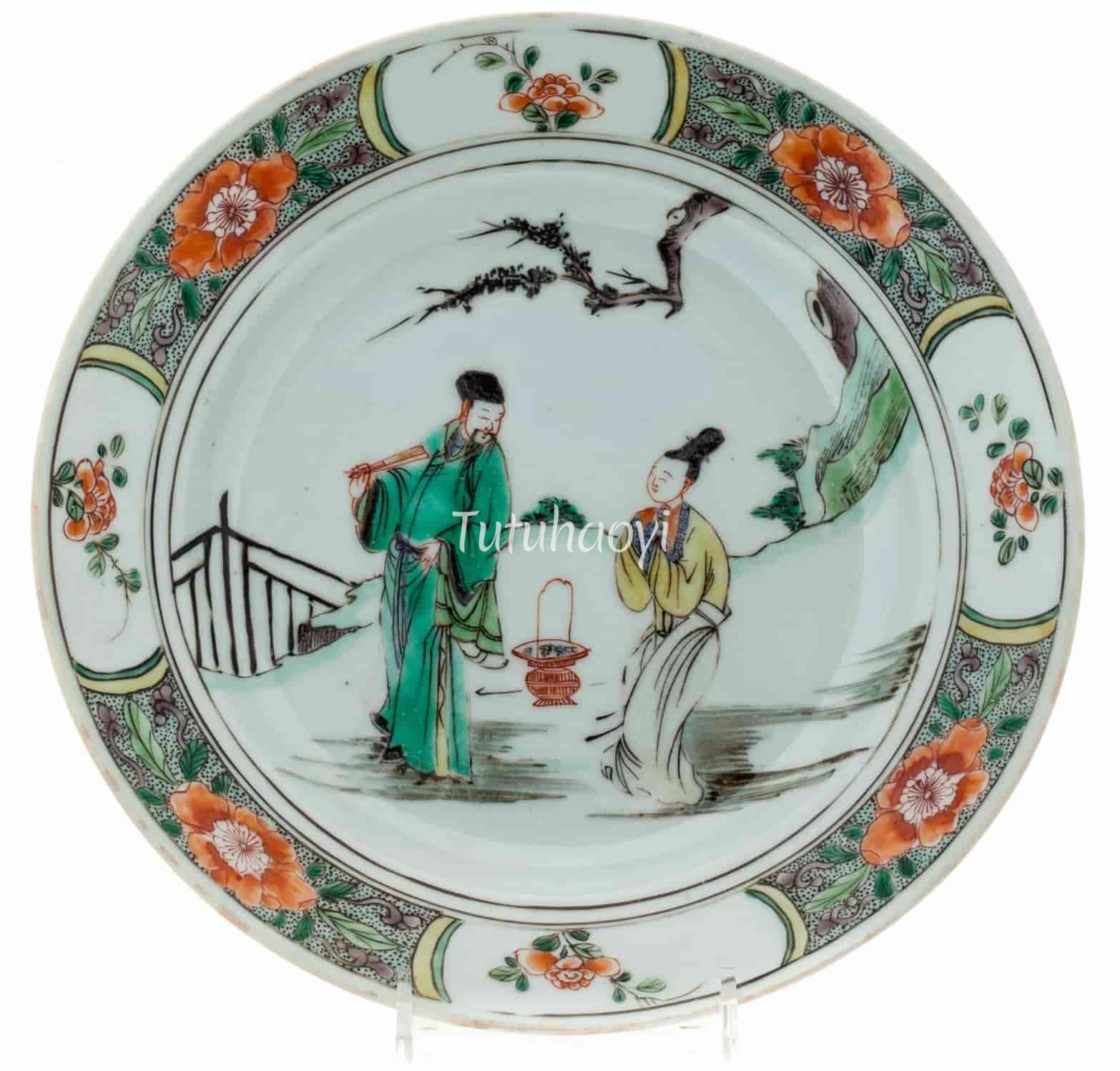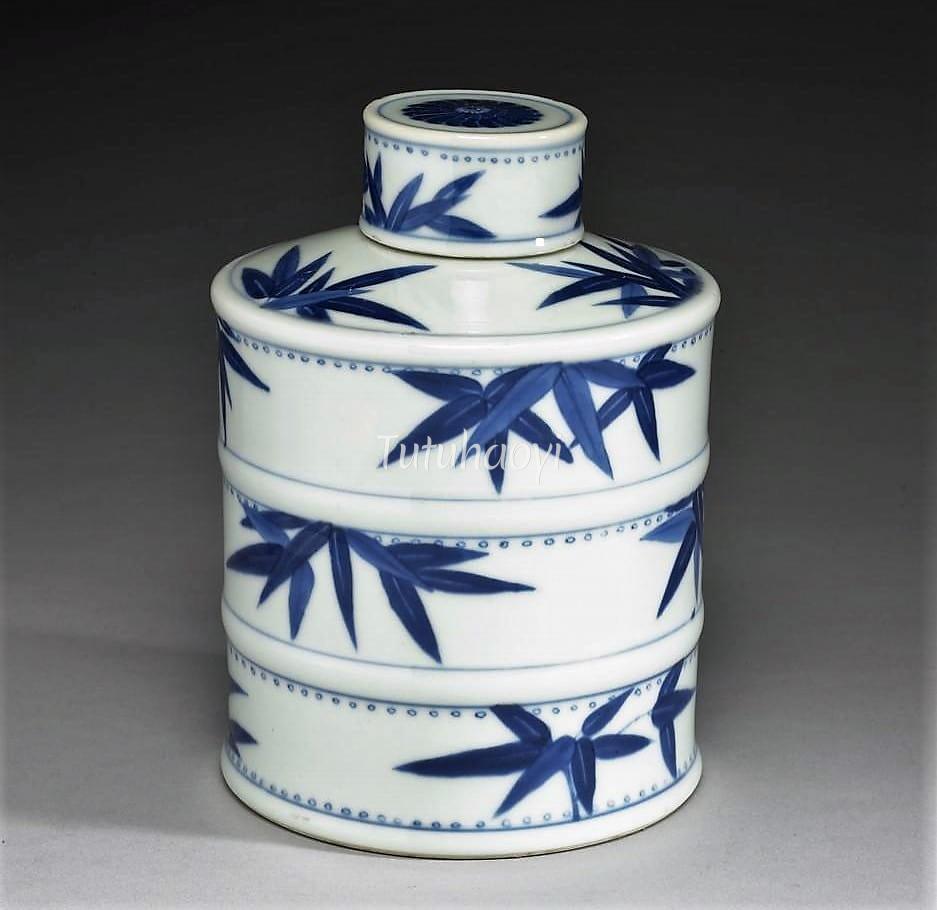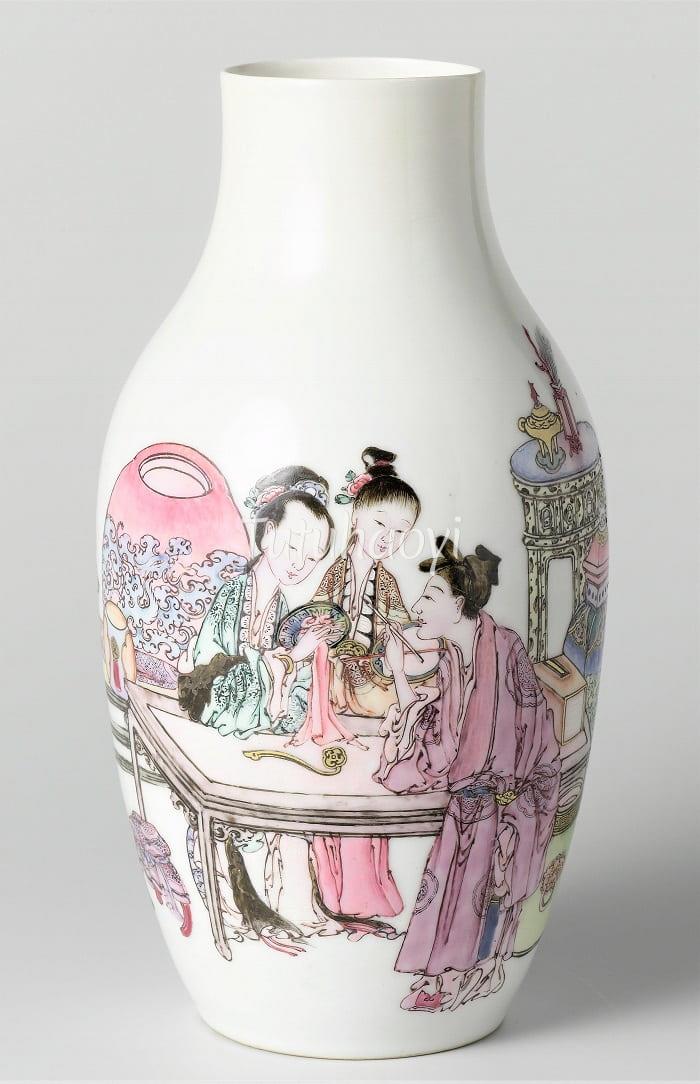Showing Results Containing
General Guo Ziyi deterring the mighty enemy has been a famous event in ancient China around mid-8th century. Deciphering this story scene on Chinese porcelain plates and tiles, however, has not been straightforward and has taken iconography specia...
Many museums and auction houses are often unaware of the pun rebuses hidden in traditional Chinese pictures and have treated them as mere naturalistic ones. Thus, the cultural and social significance contained in the motifs are unfortunately overl...
When you mistake a motif in a traditional Chinese picture, you could have misinterpreted the meaning of the whole image intended by the ancient craftsman. Dr Yibin Ni has used the following example to illustrate the hidden meaning of a series of i...
There have been a few interesting discussions even guesses on a mysterious scene which depicts mainly three figures surrounding a large bowl. The story scene actually comes from an important anecdote in Song dynasty in China. Let Dr Yibin Ni expla...
Have you ever been puzzled by the description of ‘figural paintings’ for Chinese porcelains listed by various museums and auction catalogues? In fact, many Chinese paintings with figures refer to ancient stories and have meanings behind the scenes...
Do you wonder why two warriors are waving swords over a rock that looks like a cross bun? Let Dr Yibin Ni demystify this enigmatic scene for you, which illustrates the old Chinese saying ‘bedfellows dream different dreams’!
Story scenes painted on Chinese porcelains are sometimes mysterious and challenging to understand. Dr Yibin Ni, whose specialised research is to demystify figures and story scenes, and decode motifs, symbols and pun rebuses in Chinese art, is here...
Have you wondered why the same story scenes were painted differently on Chinese artworks? How was it painted to present women falling in love on Chinese antique porcelains? Read on to see what Dr Yibin Ni has to say with his analysis.
Feng Menglong (冯梦龙 1574–1646), a Chinese historian, novelist, and poet of the late Ming Dynasty once recorded this tale in his Stories to Caution the World:
In the Tang dynasty, Emperor Xuanzong (r. 712–756) presided over the flourishing ‘Kaiyuan Era’. Early in his reign, he valued learning and t...
The Tale of the Curly-Bearded Fellow (Qiu Ran Ke Zhuan 虬髯客传) by Tang dynasty writer Du Guangting 杜光庭 recounts a vivid episode from the youth of Emperor Taizong, Li Shimin 李世民 (598–649). Set during the final years of the Sui dynasty—when warlords rose across a fractured empire—the story reflects the peop...
The tale of Three men laughing by the Tiger Creek was already circulating during the Tang dynasty and gained widespread popularity in the Song dynasty.
According to legend, Huiyuan 慧远 (334–416), the abbot of Donglin Temple on Mount Lu, was known for never seeing his guests off beyond the bounds of Tiger C...
According to Records of the Grand Historian (Shiji 史记, Biography of Fan Sui and Cai Ze), during the Warring States period, Fan Sui once served under Xu Jia, a senior official of the State of Wei. On a diplomatic mission to the State of Qi, Fan Sui received gifts from the King of Qi. Xu Jia, suspecting h...
The figures of Three Star Gods are personified representation of Good Fortune, Prosperity, and
Water Margin, also known as Outlaws of the Marsh or All Men Are Brothers, is a classic Chinese novel written during the Ming Dynasty. It is considered one of the Four Great Classical Novels of Chinese literature.
The authorship of the Water Margin has always been a subject of de...
Image of the Five Principal Human Relations (Wu Lun Tu 五伦图), also known as Lun Xu Tu 伦叙图 (Epitome of Hierarchical Social Order), symbolises the five basic relationships in traditional Chinese society.
This design typically consists of five kinds of birds, the Continue Reading
Guo Ziyi (郭子仪 697–781), a native of Huazhou 华州 (a county near present-day Xi’an 西安), was the most prominent general-statesman of the Tang dynasty. For the great part of nearly thirty years and under a succession of four different emperors, he played a key role in maintaining the stability of the country. He helped to
Guo Ziyi (郭子仪 697–781), posthumously bestowed the title Prince Zhongwu of Fenyang (汾阳忠武王) because of his birth place and his contribution to the court, was the greatest Tang-dynasty general. He played the key role in military campaigns against the Uyghur Khaganate and Tibetan Empire, enemies constantly threatening China ...
Cao Guojiu (曹国舅) is one of the later comers among the legendary Eight Daoist Immortals and has the fewest colourful stories attached to him. During the Yuan dynasty (1271–1368), ...
‘Li Mi (李密 582–619) Hanging His Books on His Ox Horns’ is one of the inspirational self-improvement stories in ancient China. It was adopted in the famous Three-Character Classic (三字经 San Zi Jing), written in the 13th century. The primer served as children’s first textbook in elementary...
Pun Design:
Carrying on the Back + Monkey
Punning Details:
– ‘bei 背’ for ‘carrying on the back’ makes a pun on ‘bei 辈’ for ‘generation’
– ‘hou 猴’ from ‘hou zi 猴子’ for ‘monkey’ puns on ‘hou 侯’ for ‘marqui...
Pun Design :
Official Hat + Wine Vessel
Punning Details:
The combination of ‘jia 加 putting on’ and ‘guan 冠 hat’ – ‘jia guan 加冠’ is a pun on ‘jia guan 加官’, meaning ‘receiving an official title...
This is a scene from a popular traditional play ‘A Set of Interlocking Stratagems (连环计)’.
The war lord Dong Zhuo (董卓, ? – 192 CE) became a senior minister in the Han court. His tendency to dominate the young sovereign, Emperor Xian of Han (汉献帝, 181–234 CE), gave other ministers cause for concern. They asked Wang Y...
This is a story of a brave woman who boldly exercised her rhetorical competence, managed to correct the erring ruler and saved her husband from execution. The story of The Wife of the Bow Maker in the State of Jin (晋弓工妻) is recorded in Chapter 6 Convincing and Perceptive (辩通传), Biographies of Exemplary Women (列女...
Evidently, Zhao Kuangyin (赵匡胤 927–976), Emperor Taizu of the Song dynasty (宋太祖), often paid unofficial surprise visits to his courtiers. As a result, his ministers did not dare to change their official attire into casual wear even when they returned home from court. They had to be ready for imperial visits any time and d...
The main figure in the scene is a dignitary, often gripping a hu (笏) tablet in his hands, which an official uses to take notes when he has audience with the emperor in court. He is usually sheltered by page boys erecting some fans or a parasol or guarded by a soldier holding a weapon with an iron melon on the to...
A variation of 平升三级 ping sheng san ji (May you have three successive promotions unexpectedly) is 连升三级 lian sheng san ji. The design h...
The Chinese character for ‘monkey’ is 猴 hou and it puns on the word for ‘marquis’ in Chinese 侯 hou. The expression ‘mashang 马上’ in Chinese is ambiguous in that it can mean, literally, ‘on a/the horse’, or it can mean, idiomatically, ‘right away’. Therefore, an image of a monkey on the back of a...
The earliest pictograph of the character 鹿 lu for ‘deer’ is found on a tortoise plastron burnt to crack for divination. Though it is by no means anatomically accurate, the pictograph exhibits the most clearly recognisable characteristics of the animal. It vividly imitates the four legs, slender head, lean body, and promi...
The story scene is originated from an anecdote dating back to the Tang dynasty (618-907). Cui Rong (崔戎, 780-835) is a statesman who is important enough to have a position in the ‘Biographies’ section in the official histories The Old Book of Tang (jiu tang shu 旧唐书), completed in 945, and the New Book of Tang (
A gathering of four distinctively different fishes can be read as a pun rebus design expressing an admonishing message ‘qing bai lian jie 清白廉洁’, which literally means ‘pur...
According to the Account of Wu (吴志) in The Records of the Three Kingdoms (三国志), Lu Ji (陆绩), was a native of Wu. At the age of six, he had an opportunity to meet Yuan Shu (袁术), who at the time controlled the region of Jiujiang. Yuan Shu put out some tangerines for him to eat. Lu Ji surreptitiously stuffed three of them in...
This pun rebus picture consists of four essential pictorial elements: bird,
The ancient Chinese would employ a picture of a monkey reaching for a bee hive to wish their boss an imminent promotion. The word for bees in Chinese is ‘feng 蜂’ and the word for monkeys is ‘hou 猴’. When ‘feng’ and ‘hou’ are put together, they can form the phrase 封侯 which means ‘be bestowed a rank of nobility’ in Chinese...
When the old duke of Jin (晋) passed away, his heir was still in the cradle. It was with the powerful minister Zhao Dun (赵盾)’s support that he succeeded in ascending the throne. Unfortunately, the young duke, who was posthumously given the title Duke Ling of Jin, Jìn Líng Gōng (晋灵公, ? – 607 BCE), became increasingly the o...
The young duke of the State of Jin (晋) who was posthumously given the title Duke Ling of Jin, Jìn Líng Gōng (晋灵公, ? – 607 BCE), has been known as a ‘ruler who does not deserve his title (bu jun 不君)’. His despotic behaviour was enumerated in the records by historiographers. For example, he levied heavy taxes to b...
When the Baron of the Zhou vassal state (周西伯) did a divination with oracle bones for his imminent hunting trip, the message came: ‘You will not catch a small bear or a large bear, but a teacher will be presented to you by the divine power.’ After bathing and fasting for three days, the baron arrived at the River Wei, he ...
Zhao Bian (赵抃, 1008–84) was held in high esteem all his life and posthumously because of his incorruptibility and sound statesmanship during his entire career. His prize possessions were legendarily well-known: a qin zither and two pets, a Continue Reading
In the 14th-century historical novel, Romance of the Three Kingdoms (三国演义 – 甘露寺招亲), the generals in the Dongwu (东吴) kingdom conspired to murder Liu Bei (刘备), head of the Shu Han (蜀汉) kingdom, by inviting him to their territory with the promise of their king Sun Quan (孙权)’s sister for his wife. When Liu Bei...
When Bing Ji (丙吉 d. 55 BCE) was a chancellor in the Han court, once he encountered the aftermath of a gang fight in the street. Bing Ji passed them without batting an eyelid. Further ahead, a buffalo passed and it looked out of breath. Bing Ji had its owner stopped and inquired about the buffalo’s heavy panting. Bing Ji’...
A fish is an ancient symbol of material prosperity and fertility in China, both because it puns with another word yu 余 meaning ‘abundance’, and because of the...
Qiuhu (秋胡), a native of the state of Lu during the Spring and Autumn period (770-476 BCE), was ordered to take up an official post in the state of Chen a scant five days after his marriage to Jiefu (洁妇), the ‘Loyal Wife’. Five years later, on his way back home, he encountered a woman by the roadside picking mulberry leav...
In the current form of the character 竹 zhu, the image of two bamboo stems side by side is still clear. Other ancient forms of the character show the pair gently bending toward one another, illustrating the flexibility of this highly esteemed plant. ‘Young bamboo bends easily’ is one of the many common sayings that refer ...
Zhang Chang (张敞, ?- 48 BCE) and his wife grew up in the same village. When they were both children, Zhang Chang once threw a pebble at his future wife and, unfortunately, the scratch left a scar on one of her eyebrows. Later, Zhang became a civil servant and learned that the girl he once hit with a pebble was unmarried b...
